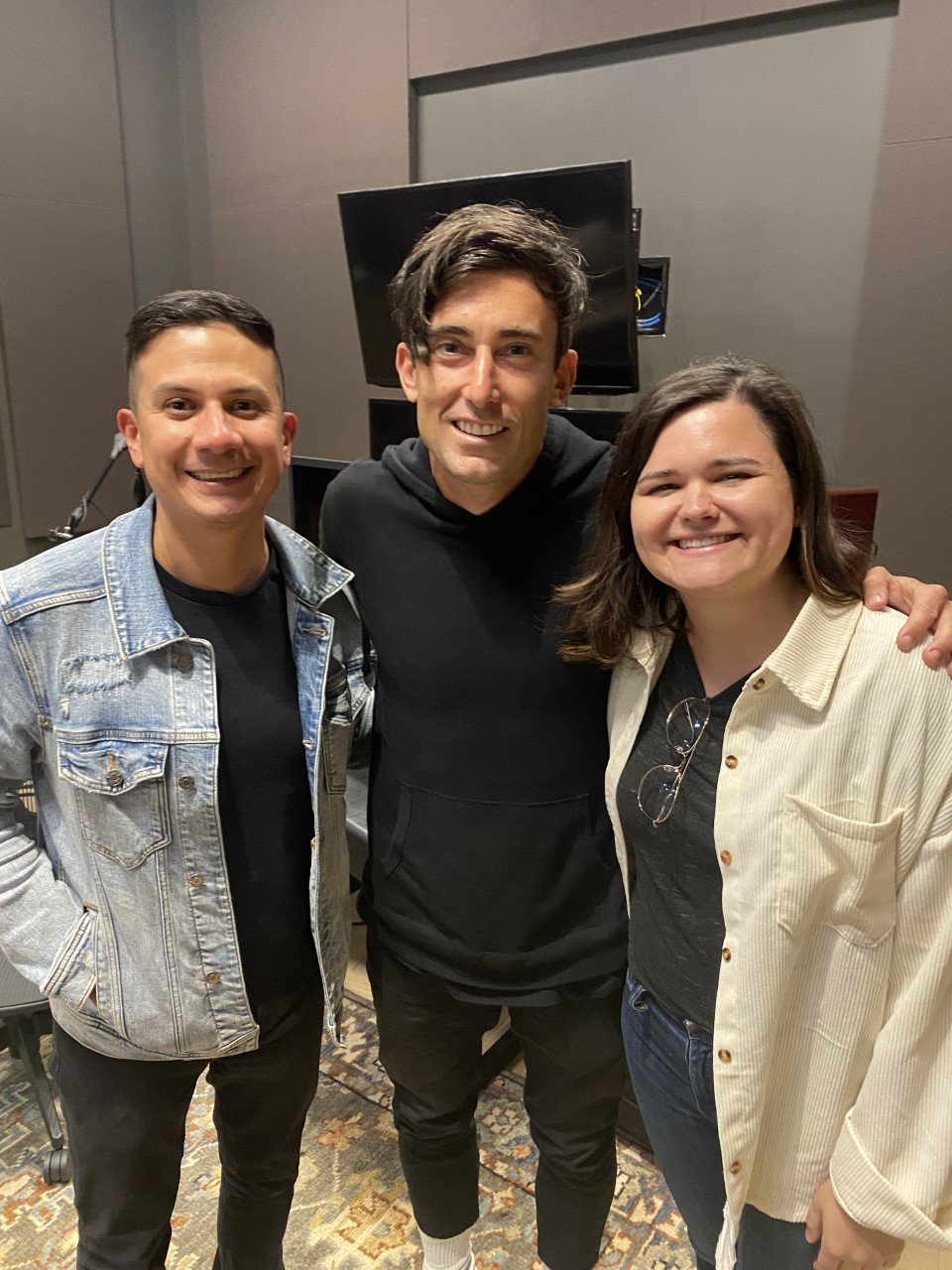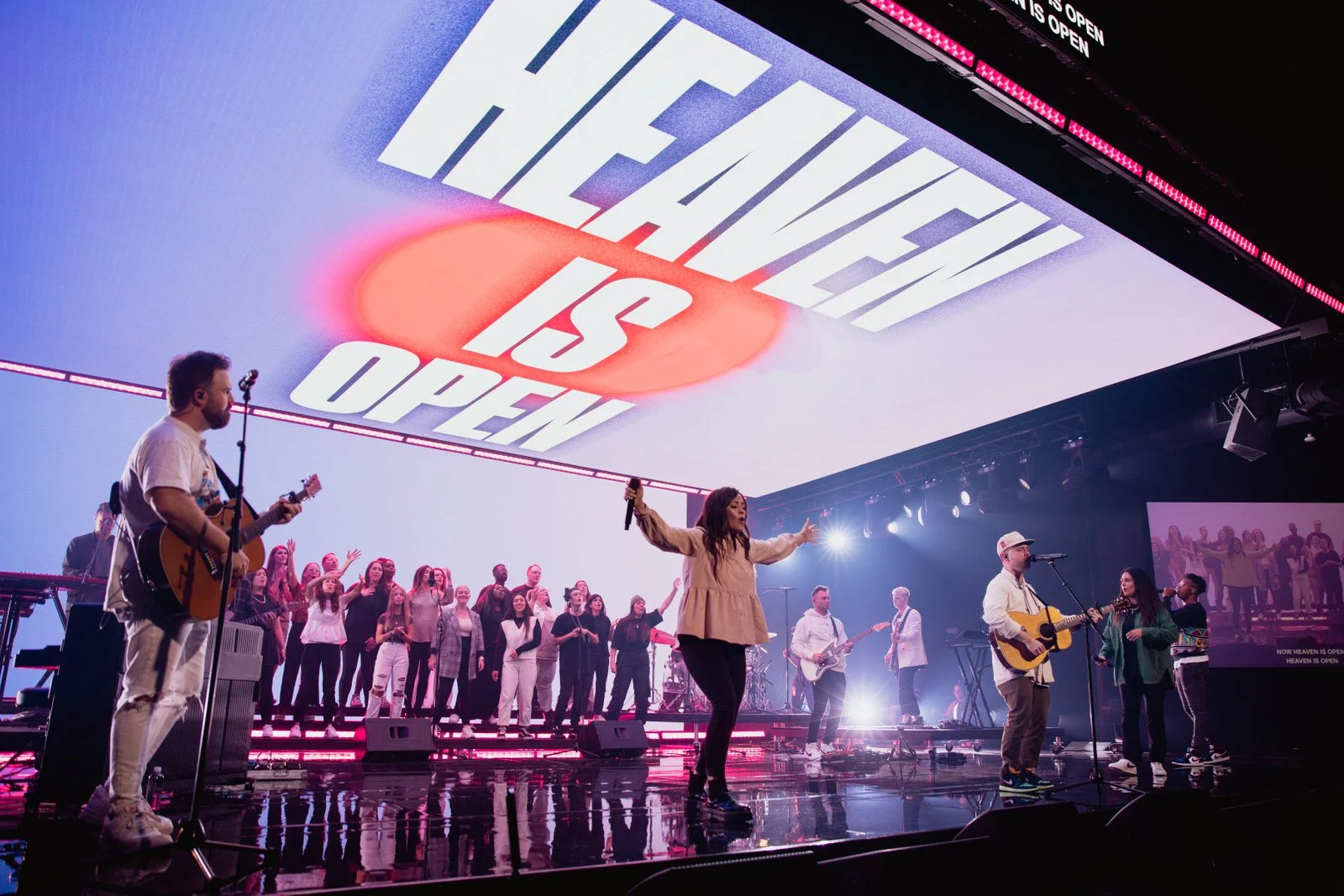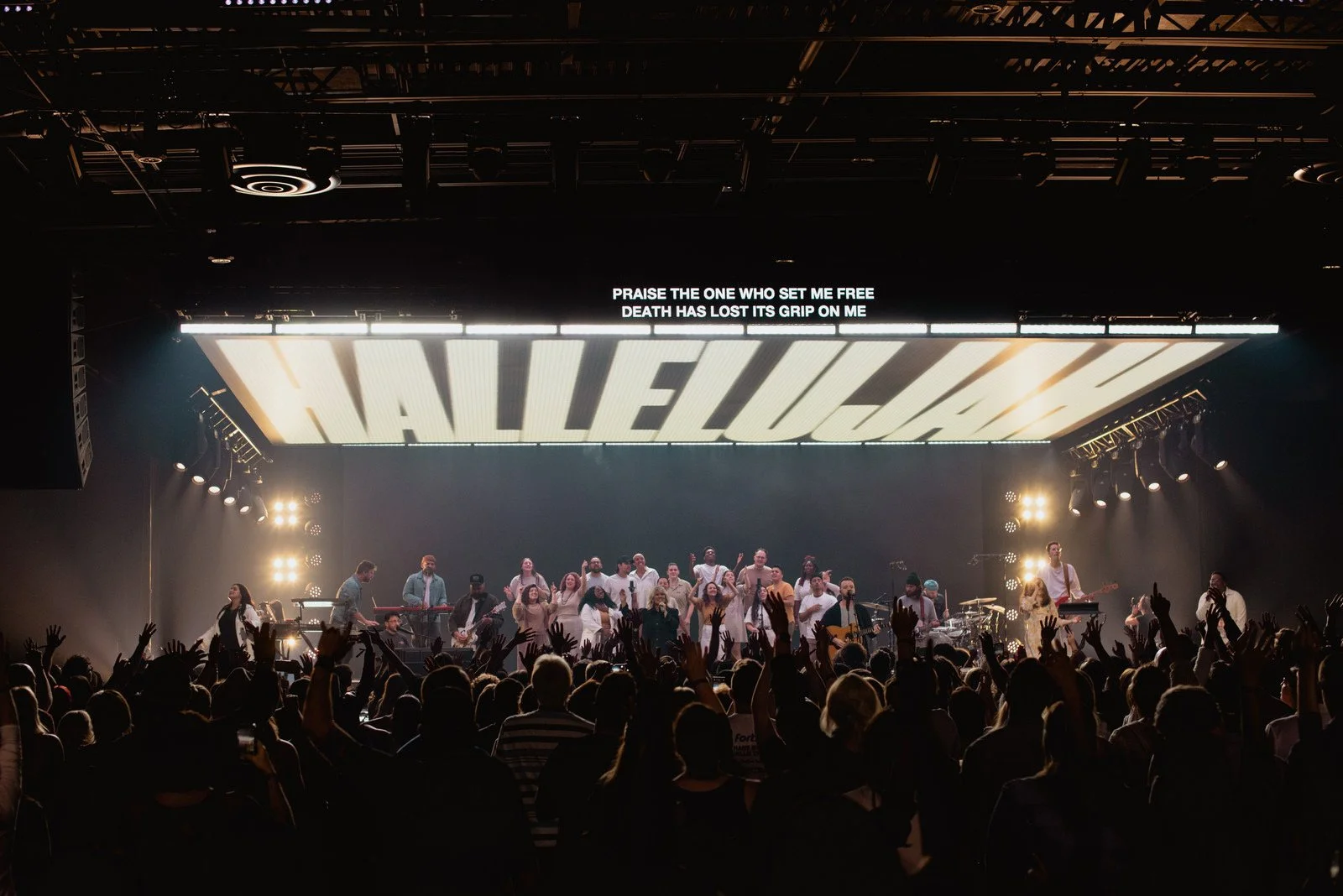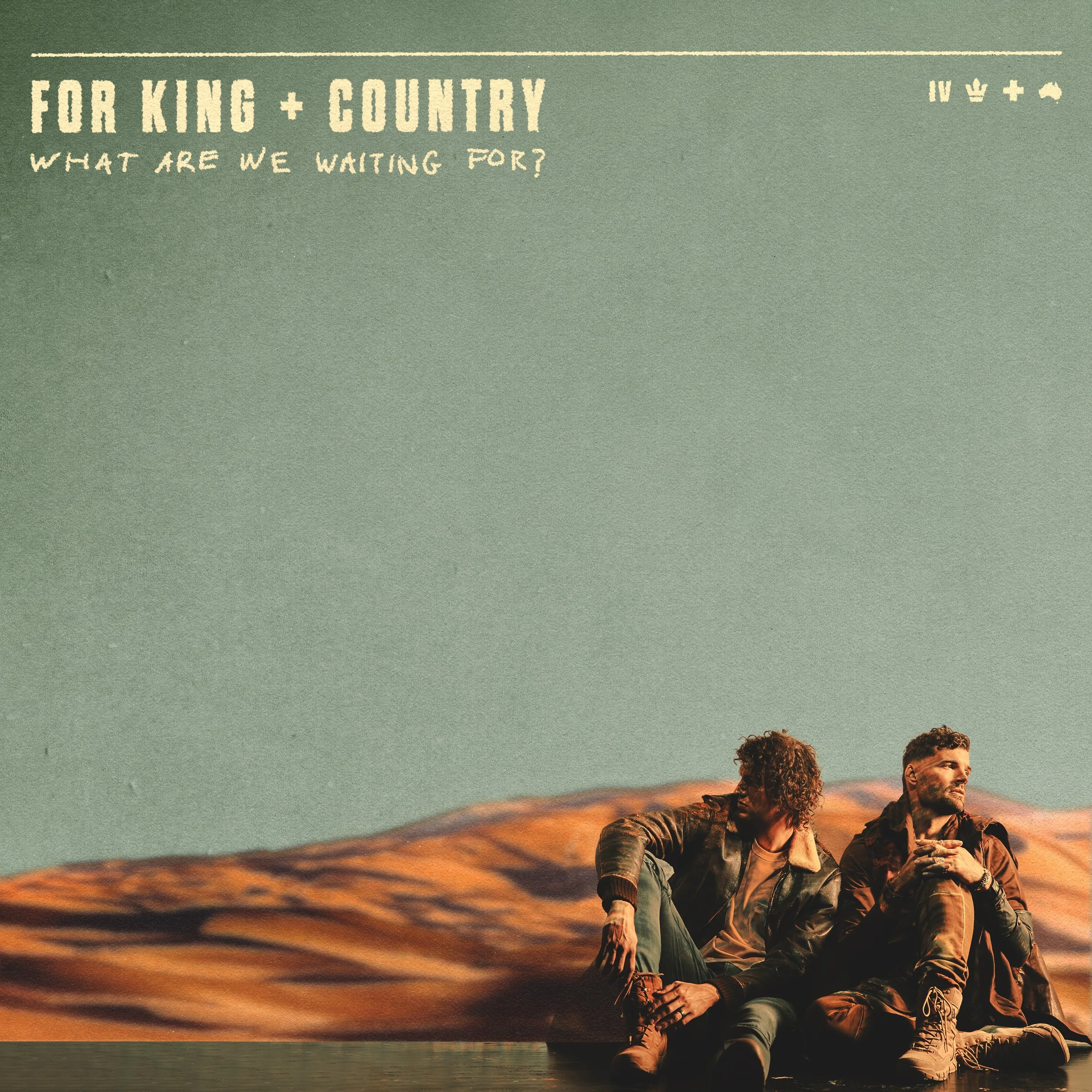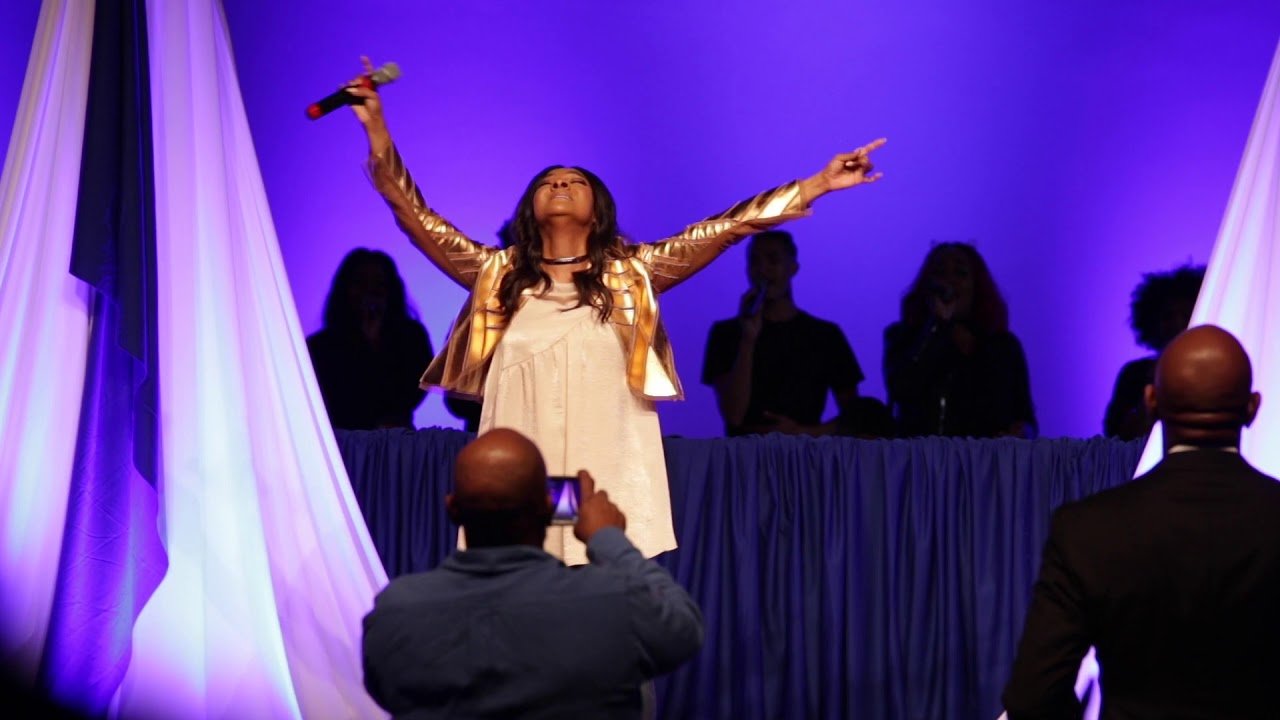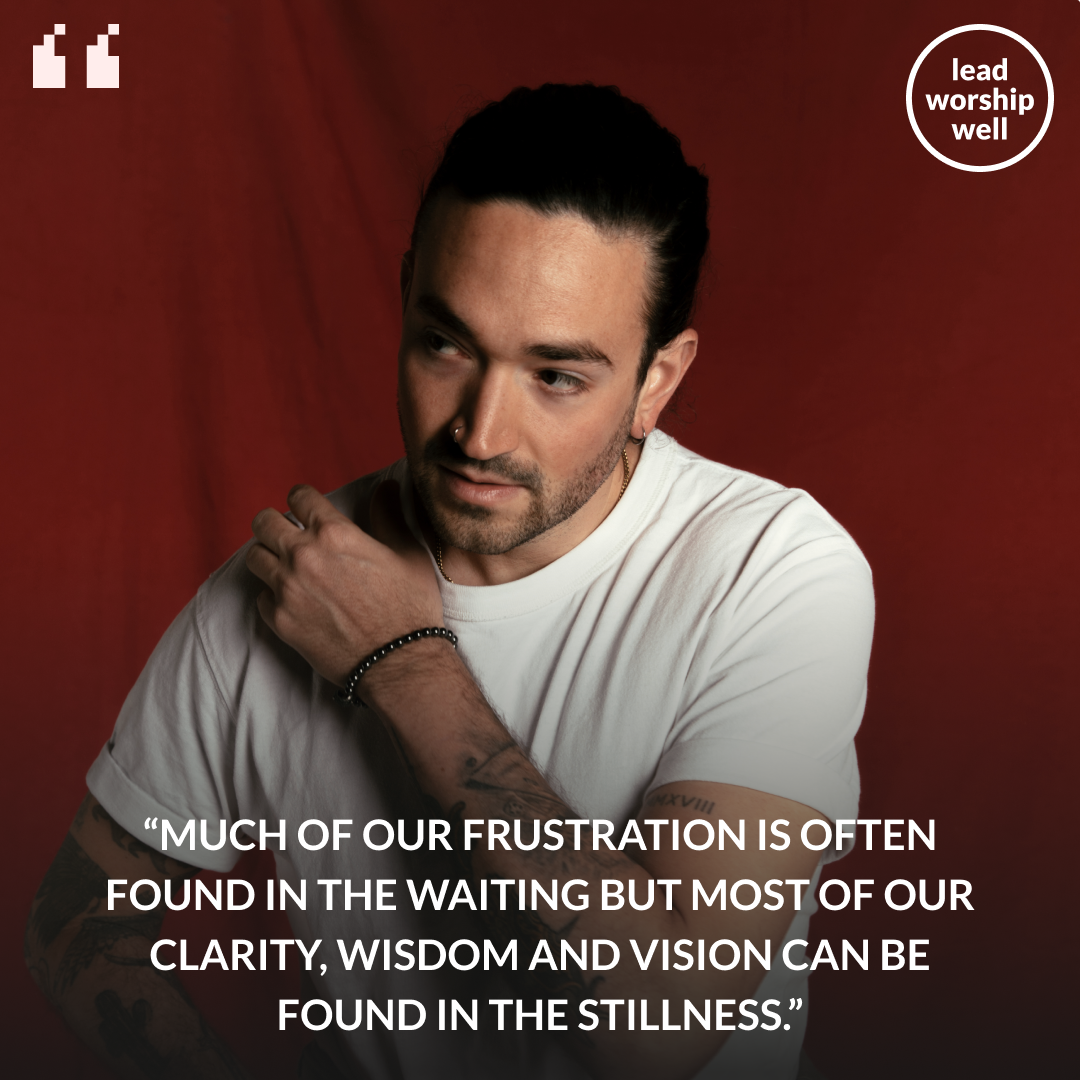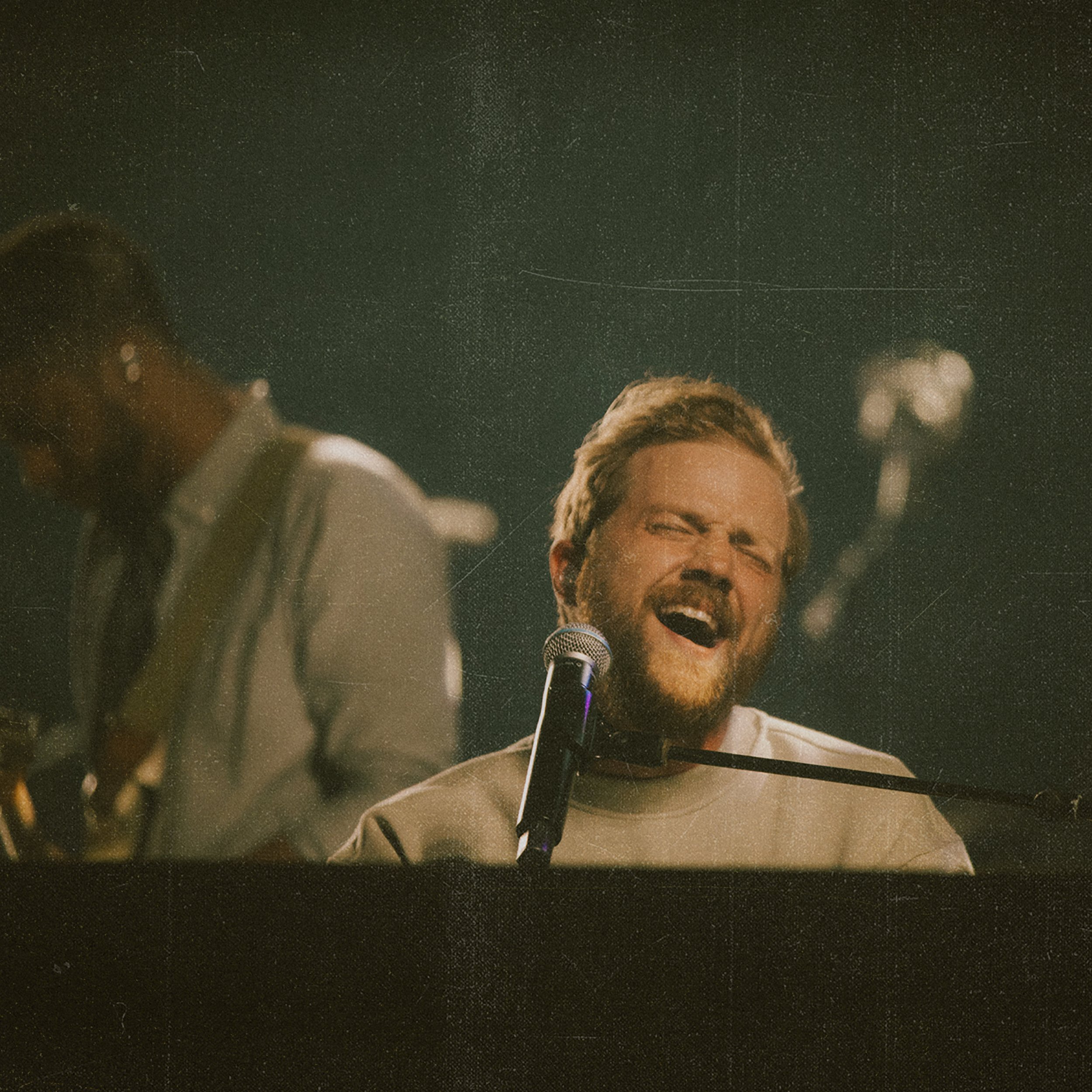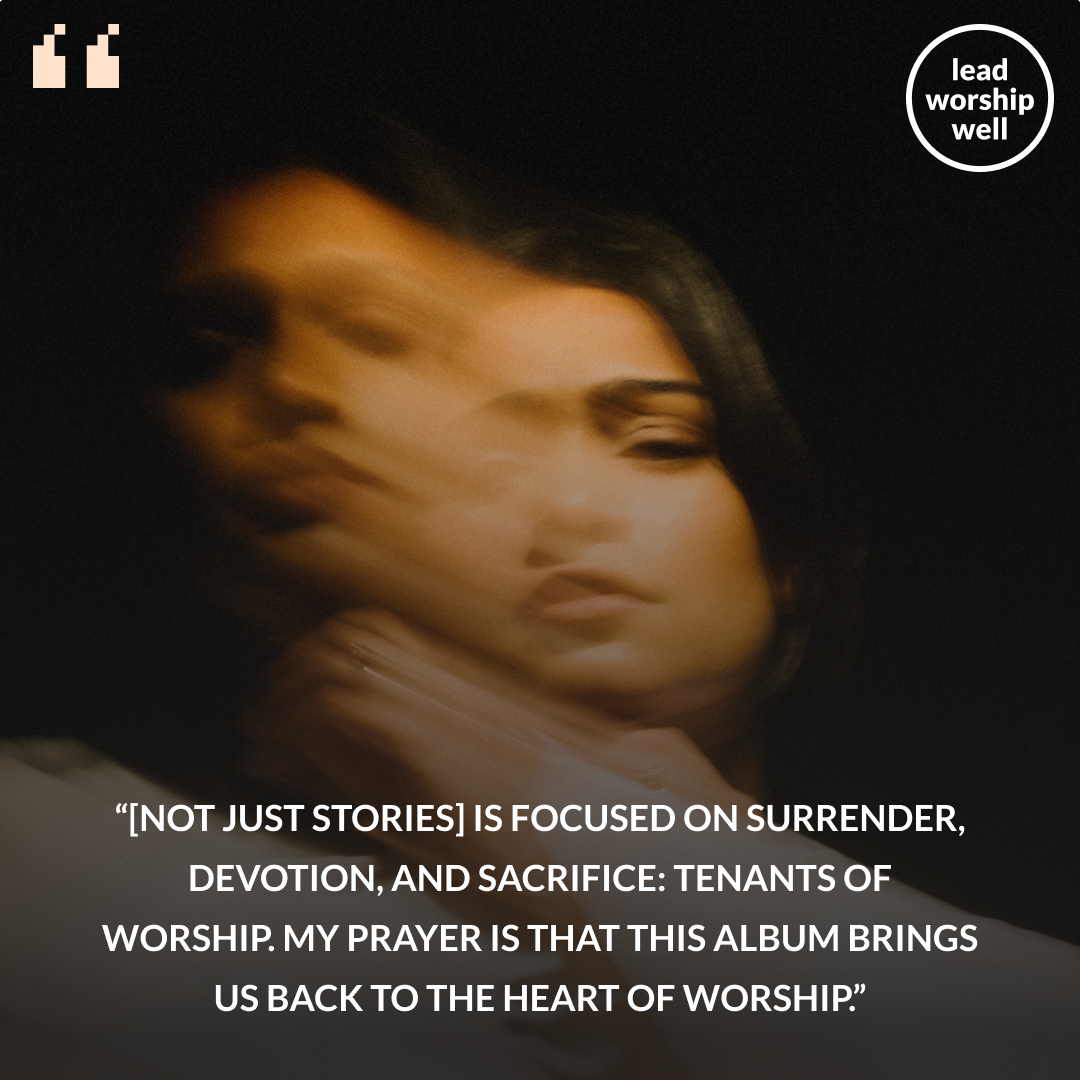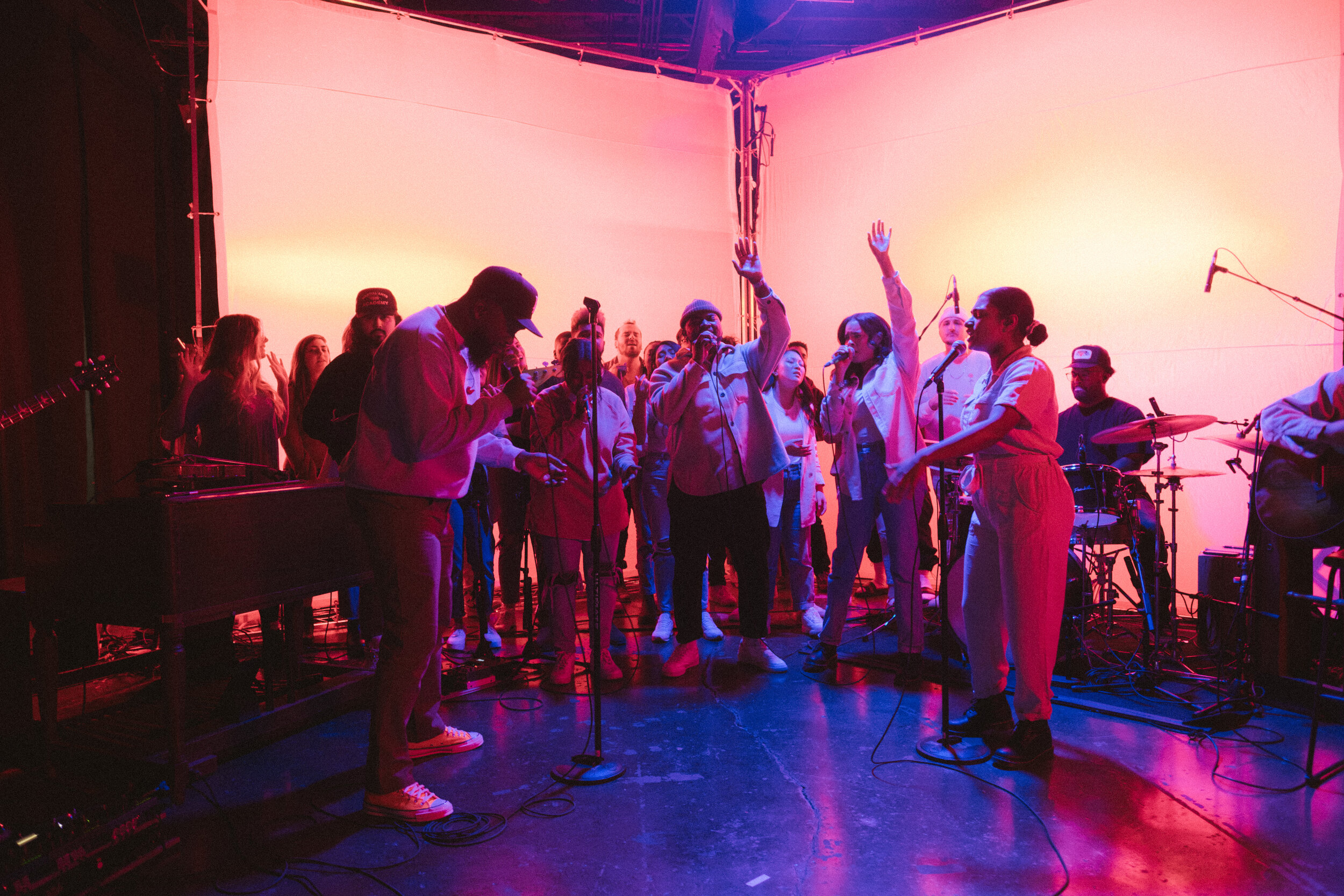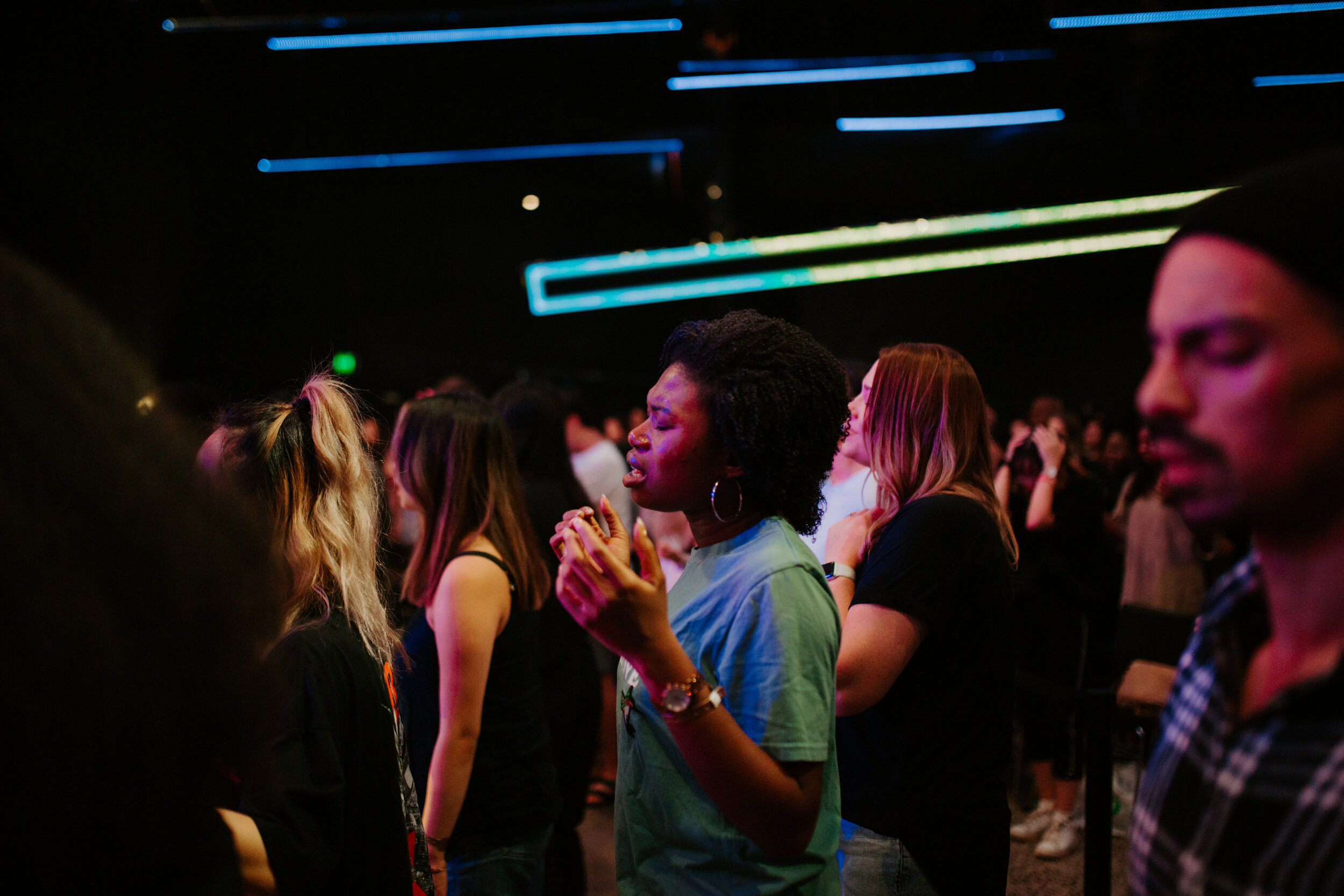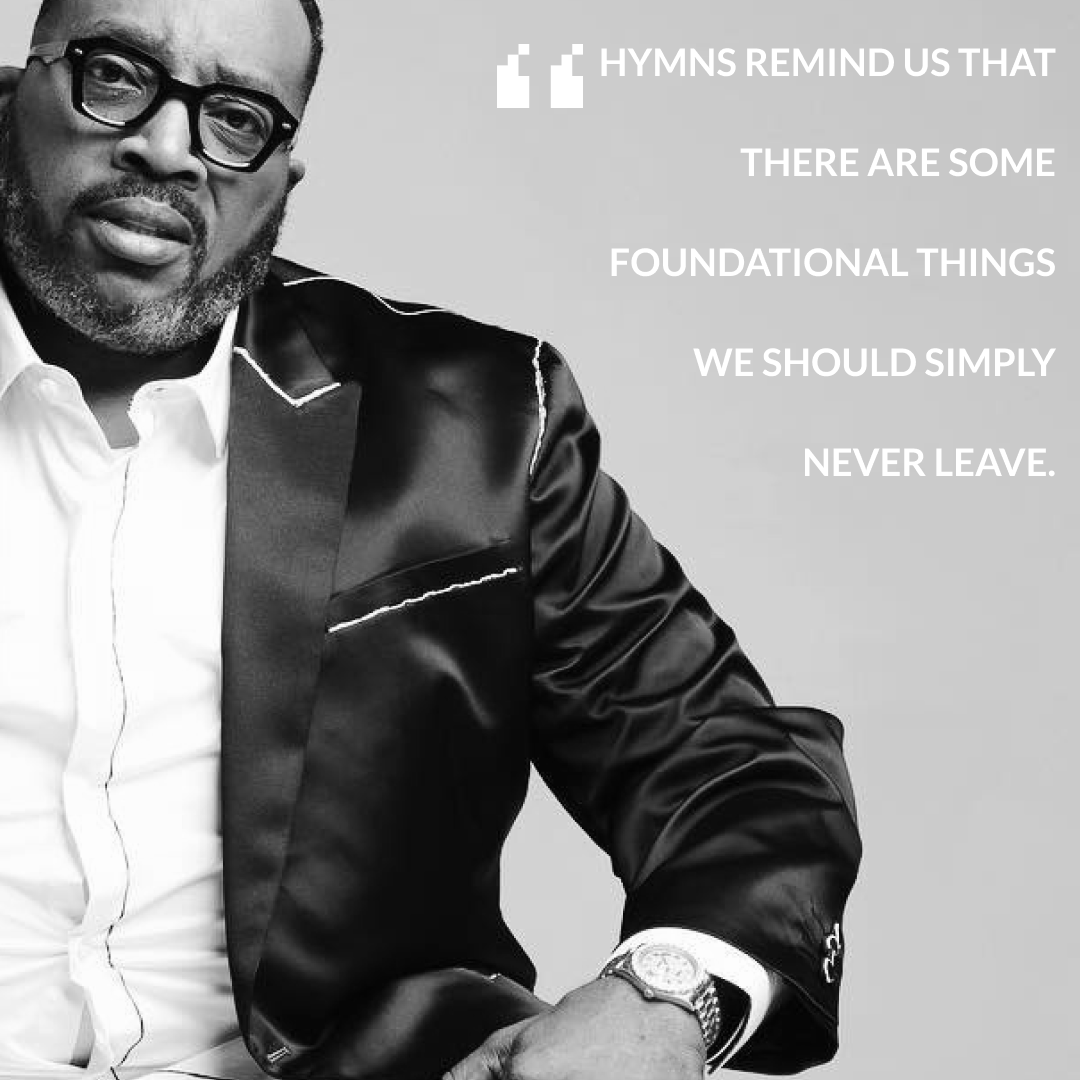Mosaic MSC
Mosaic MSC is a culturally diverse worship collective based in Los Angeles. The group talks gratitude, writing from the perspective of a non-believer, and more, expressed in their latest album: This Is How I Thank The Lord.
Mosaic MSC is a culturally diverse worship collective based in Los Angeles. “Written during the group’s first writing trip to Wyoming after half a year apart, the 12-song offering is a rediscovery of who Mosaic MSC is as a group.” — CCM Magazine
The group talks gratitude, writing from the perspective of a non-believer, and more.
“This Is How I Thank The Lord” is Mosaic's highest streamed debut of all time. Why do you think that is? Why is this the song that is resonating most?
We’ve found that the theme of gratitude in “This Is How I Thank The Lord” resonates strongly with many people.
There’s something really special about being given three minutes in a worship song to step outside of yourself and take an opportunity to express your gratitude to God.
Tell us about the experience of recording this song in a warehouse in LA, backed by a 30-person choir.
We recorded the entire record at our church in Hollywood, CA in the auditorium! It was a really beautiful experience to record these songs where we would share them with our church live, in worship, after being apart for so long over the pandemic.
It’s really neat how you all sequenced this album. This project starts with a song called “How Do I Thank You” and then leads into “How Could I Explain,” and then these openers are answered in the title track. Tell us more about this placement and which song came first!
“This Is How I Thank The Lord” was always our #1 to be on the album – so every other song was chosen with that song in mind. At Mosaic, our church, we have a lot of people who come and attend who don’t yet believe in Jesus, so we always try to write for their perspective.
We know the answer is Jesus, but what would their questions be? How can we explain Jesus to someone who hasn’t yet encountered him?
Continuing on the intentional sequence thread - you end with “Rejoice” which is the natural, spiritual response to thankfulness and gratitude. There’s a line that says: Every time I cry out in need I need help to breathe, You’re air. While someone might write He gives me air, I love that the conclusion here is that He is our air. Tell us about the writing process of the closing track and lyrical choices like this one!
We wrote rejoice altogether – one of the three full-band collaborations on the record.
It was really, for us, a poignant moment of healing from what we were all experiencing during the pandemic, and choosing to rejoice in God no matter the circumstances.
That line specifically has echoes in it from all of the protests in 2020 that were numerous across Los Angeles.
When you’re surrounded by injustice, violence, inequity – it can feel hard to breathe. We know the solution to so many of the world’s problems begins in the human heart. Jesus and becoming like him are what frees our souls to breathe in love, life, wonder, beauty, and peace.
Mosaic MSC | This Is How I Thank The Lord
Lead songs from This Is How I Thank The Lord with your congregation.
Phil Wickham
We sat down with Phil Wickham during his tour to talk about the purpose behind releasing Hymn of Heaven (Acoustic Sessions), what encourages him about today’s worship writers, and more.
Phil Wickham is currently on the road for the Hymn of Heaven tour. Before his show at Austin Ridge Bible Church, we had the privilege of sitting down with him to chat about his new songs, the purpose behind releasing an acoustic version of Hymn of Heaven, what encourages him about today’s worship writers, and more.
So for this leg of the tour, you’re joined by Josh Baldwin and Kim Walker-Smith. We know Josh can be a character - have there been any funny tour moments?
We’re all characters too so he fits right in. I think the most entertaining thing is that our manager got us on Oculus (the VR thing). A lot of us had never done it before so everybody doing the “walk the plank” over the buildings, the giant spiders attack, etc. was pretty hilarious watching everyone do that.
And y’all are doing this on this tour bus? That’s a lot of stimuli.
We did do it on the tour bus. It’s crazy when you’re doing the flying thing and the bus is moving - you kind of start feeling like you’re there. It’s wild.
That’s awesome. Tell us about the songs you’re leading on this tour and which one in particular has been resonating the most?
A big part of this tour was to not have openers or closers - break the mold of the normal tour, I guess. So I made a list of some of my favorite worship leaders (Josh, Cody, Kim, Naomi, etc.) and just asked my team if we could have them all out, just at different times. So we’ve been having a different special guest every month. It hasn’t been easy but I definitely think it’s been worth it because it’s been special and fresh every month. I just wanted the people out that lead me in worship when I’m out on a run, or putting my kids to bed, and to have them out and not just do their thing but all do something together. So we’re all bringing songs that have seemed to have connected outside of our church buildings. Everyone’s bringing songs that just light the room up.
And then it’s been really special to sing the songs that seem to have connected most with people from my album like “Battle Belongs,” “House of the Lord,” “Hymn of Heaven,” “1,000 Names, etc.” I can’t stop thinking onstage, every night, I keep getting this memory that feels like a vision it’s so real, I can even smell the youth group room, just this stinky, sweaty room. (Why are they always sweaty?) and just leading worship as a 13 year old kid - just so happy to be there and didn’t need to be anywhere else. And just seeing the goodness and grace of God over my life - His protection, His kindness, and His faithfulness - and I’m looking out over these rooms that have all been full (which I’m just like: “What? Why am I in Minneapolis and there’s 4,000 people here”) but they show up with so much desperation to sing and so much faith filling up the rooms.
And I’m just more aware than ever of God’s grace in my life and faithfulness as I get to write these songs and bring these prayers that were written for my home church to sing, and make them other people’s too. It’s been amazing.
You mentioned leading worship since you were 13 years old. Being from a pastor’s family, was this calling just ingrained in you?
Not at all, actually. We moved from Orange County to San Diego, my Dad was at Calvary Costa Mesa, and just felt a call through a pastor. My dad gave me a guitar, didn’t tell me how to lead worship with it or anything just gave it to me, but the way I learned how to play guitar was through all these chord charts of worship songs that were around. And that’s how I fell in love with God was through music and through just worshiping in my own room.
But even then I wasn’t like: “I can’t wait to get onstage.” I was always the reluctant guy - I didn’t want to do a record, I didn’t think anyone would want an album of mine, but then a family wealthier than ours gave me the resources to make one because they saw the hand of God on my life I guess. So God definitely had to kick me through some doors every once in awhile. I just never wanted to do anything I wasn’t supposed to do, which I think is a lesson in itself which is: being able to hear the voice of the lord instead of the voice of my own fear or insecurities.
I never felt like this is what I have to do. I still can’t believe it - that’s why I brought it up - like, I can’t believe it. What an amazing honor that God has me in this position right now and I just want to be a good steward of it until He wants me to do something else.
That’s cool that you mentioned that you fell in love with Jesus learning to play music and now you have that songs “Reason I Sing” and it’s about how you sing now because you love Jesus. It’s kind of a full circle moment. Tell us about this song and the acoustic version you just released.
Yes, that song is going to be part of a whole, reimagined record of Hymn of Heaven. I wrote “Reason I Sing” to be the opener of a worship set to ask: “What are we really here for?” I love singing about what Jesus did for us on the Cross and how He conquered the grave and how every fear, in light of that, now pales in comparison, and everything that was beautiful becomes more beautiful because it’s all wrapped up in who He is. Everything is wrapped in Him.
Through the lens of Him, a clarity is brought to all life.
The more I learn about Jesus and how the culmination of the scriptures leads to Him, and how the Church is this growing thriving, messed up, awesome thing that flows from Him - it all comes back to Jesus. If there’s anything I want to say at the top of a worship set it’s this. We did it in a very low key way - that’s the whole record.
My family and I go to the same spot on this cliff, it's about 2 miles away from our house, and it’s the first view of the Pacific Ocean that we have, so whenever we’re heading to the beach we come around this bend and it’s up on this cliff. You see the train tracks, Cardiff Beach is right there. And my family parks in the dirt in this beat up Sprinter Van and open the sliding door and we usually take our dinner there and just sit on blankets and watch the sunset. We were out there, and I like to play low-key worship music when we do this, you know, try to have a chuchy moment with my kids in the middle of a crazy day like: “Isn’t God awesome??” And they’re like “Ok Dad….” I think I was playing Prayerdoxology from Elevation, and that album is just beautiful versions of songs that are already beautiful, and I thought: “I wanna do this.”
I wanna make a sunset record - a coffee in the morning record, a putting your kids to bed record, with these songs I already have.
I could show it to you later, but I have this picture of all my kids looking at the sunset and I just kept looking at that when making this acoustic record - I’d have a question in the studio like, “let’s put a little bass on this” and I’d come back to that photo and go: “you know what? Vocal and guitar. That’s it.” I wanted to make a soundtrack for that moment.
I love that. Since you mentioned Elevation - you’ve been doing this since you were 13 so you’ve really seen Christian music grow and evolve. You collaborate with Brandon Lake, Sean Curran and more that are a part of this really influential generation of worship leaders right now. What about this generation of writers and artists encourages you?
It’s hard to say, because this is the only generation I’ve been actively involved with on a very personal level so it’s hard to compare.
But I will say that hanging out with Brandon Lake and Steven Furtick recently, it was just the most beautiful time of fellowship and authenticity and a heart for the Church. The world is crazy, and I think we’re seeing it in a new way, and we see it immediately now. We can’t hide from it because someone’s going to take a video of it and it’s going to show up on your feed.
And it’s just amazing to have these friends: everywhere from Passion to Bethel, and more – all through it, they just practice what they preach. We’re not perfect, but man, when I spend a day with Sean Curran and Kristian Stanfill or Steven Furtick, the Ligertwoods (we just wrote that song “A Thousand Hallelujahs”), every time I leave just so blessed to have be with people I’m going to hang out with forever. Brothers and sisters, you know?
It’s just real. Especially in today’s world, there’s nothing really to hide behind and there’s really no reason to do it unless it’s real. There’s so many other things we could do, so many other banners we could fly. The ones that fly the banner of Jesus high is just really inspiring to see.
Maybe I don’t give myself enough credit, but when I get a call to hang out with these guys who’s music I love so much, I just feel honored to be there. I’m like God: Give me something I can contribute. Because I just want to sit here and let them sing to me!
Our community is worship leaders, and we’d just love to hear some encouragement from you for them to close this out!
One thing I say to worship leaders is: you are faithfully serving your body and your people and pastoring them into a new place of worship and a higher, deeper place of intimacy with your church. Thank you so much for what you do.
I’ve kind of got a unique position since I’m not on staff at a church. I get a fresh crowd of people every time. Which in some ways is difficult: being away from family, and a specific type of responsibility and stewardship, but watching my dad as a worship pastor still being faithful to his calling to lead people to Jesus through music, it’s not easy. You have to cultivate a healthy relationship with Jesus on a daily basis, you have to maintain healthy relationships with the people you work with, with the crowd that your ministering to, and you have to do it all with such grace and humility.
Everyone around you has an opinion or a complaint. I just want to say, thank you to all you worship leaders for serving. It does not go unseen by the Lord and the Holy Spirit and we desperately need you. I don’t lead worship at my home church - I’m not on staff. The guys that are are hugely important to my spiritual growth. Just for me to sit next to my wife and sing and worship - I’m so thankful for that.
I just read today, so it’s on my heart, when the Apostles were up in front of all the leaders in Acts, they were these blue collar guys, but they spoke with such power and authority that it was undeniable, even to those that didn’t call Jesus “Messiah,” that they had been with Jesus. And that would be my one encouragement. That you would cultivate your relationship with Jesus so well that it would be undeniable to all that you serve and lead, that they would say the same thing. And that they would want to follow suit as they worship.
Be with Jesus. Make sure you’re being not just doing. Because doing can burn out quick. Make time to be with Jesus.
Thanks for your time, Phil!
Phil Wickham | Hymn of Heaven
Lead songs from Hymn of Heaven with your congregation.
The Belonging Co
Andrew Holt of The Belonging Co speaks on their latest album and how these songs are intrinsically linked with who they are as a church body.
The Belonging Co has released their fourth live album, Here!
“The songs coming out of this house are birthed from the overflow of what God is doing in our church. We feel it is part of our mandate, part of our calling to capture the sound of what God is doing here.”
Worship leader & songwriter Andrew Holt spoke on how these songs are intrinsically linked with who The Belonging Co is as a church body.
We are so excited to talk with you today about the new album!
Before we dig into the songs, we’d like to start with more of a macro level question: The Belonging Co is both a collective of worship artists who write and release music together and a local church dedicated to the people of Nashville. Tell us a bit how you all navigate these two missions. Or do you see them as one and the same?
Yes absolutely. We definitely view those two things as one and the same, in the sense that the music we release is not separate at all from who we are as a local church, it is actually quite the opposite. Every worship leader who is featured leading songs on the records we release are a part of our church, and lead in our weekly services, which is their way of serving their church.
When we first started coming together to write several years ago we made it very clear to our team that we weren’t setting out to write songs for a record/project, but rather we were writing songs for our church that gave language and melody to what God was doing every week in our house. That goal is still the same today, every time we come together to write or lead a new song the main purpose is to give our church a song to glorify and worship God and bring breakthrough into their lives.
The overflow of that heart is the recordings and moments that we release which allows those outside of our house and other churches to experience the same thing we’re experiencing with these songs in our church.
As we head into the Easter season, which song (or songs) are you most excited for congregations to begin leading as we prepare our hearts for reflecting on the death and resurrection?
I think the most obvious song for Easter off of this project is “Because Of Christ”. This song does such an amazing job at setting our minds on what Jesus did for us on the cross, and remembering that it is in the work of the cross and the power of the resurrection that we should boast.
Another song from the project that is amazing for Easter is “Come Alive (Resurrection Power)”, this song is such a chance to celebrate the resurrection power of Jesus and how that power lives in us. Plus there’s nothing like singing “I’m running out of the grave” on Easter!!
The first song released from the project was “Firm Foundation (He Won’t).” This song has been in our top songs since it first came out! Why do you think it’s connecting so much with churches?
I think Firm Foundation is such an important song that we need to be singing today as Christians.
We’re living in a time where everything around us in our world seems to be being shaken and in chaos to the point where we all are looking for something to hold onto, and nothing is as solid as the solid rock of Jesus Christ.
There is so much power in declaring over your life that “Christ Is My Firm Foundation,” making a conscious choice to not put your hope in anything else but Him and Him alone.
“Because of Christ” has this very familiar, classic melody. It makes the song feel very foundational. Tell us more about the writing and recording process of this single.
I was able to write “Because Of Christ” with Mitch Wong and Chris Clayton in early 2021. We started the chorus from Galatians 6:14, “May I never boast except in the cross of our Lord Jesus Christ, through which the world has been crucified to me, and I to the world.” I love how this song paints such a picture of the cross, and the reason we have life is because of Jesus, and then in the bridge it’s just a chance to sing hallelujah to Jesus for that life.
The version that we released was recorded at our annual church conference in September of 2021 where Pastor Henry led it, and it was such a powerful moment and the song really came to life that night.
I know it’s hard to choose, but what song from the album do you relate to most personally and why?
I think “Everything Is Changing” feels the most personal to me because it really describes for me the power of the presence of God that I have experienced time and time again in my life.
The chorus of this song was birthed out of a time of worship where I was leading at church, and as soon as we started singing this I knew that what this lyric and melody carried was important. I brought it to Austin Davis and Sarah Gerald and we finished this idea, and even as we wrote it that day we could feel the tangible presence of God in the room that day.
“We first started leading ‘Because of Christ’ on Easter Sunday this past year and it immediately became an anthem for our church. Sometimes we can focus on Easter as being this deep, solemn moment; but actually what Jesus did didn’t end in the grave — it overcame the grave! It doesn’t mean we ignore the pain and the sacrifice of Easter, but that only serves to show how great was the victory of the resurrection of Jesus...”
The Belonging Co is a church movement based in Nashville, TN. Since it’s inception in 2014, the church has become known as a place to find freedom, breakthrough, and healing through God’s Word, His presence and worship.
The heart of The Belonging Co is that every song released would empower both individuals and the collective body of Christ to encounter God through worship, and experience the freedom that comes through knowing Jesus.
We desire encounter over entertainment, intimacy over industry, presence over presentation, people over position... And most of all JESUS over everything.
for KING & COUNTRY
Joel Smallbone shared with us the backstory on their new record which experientially reflects for KING & COUNTRY, their family, and the world.
for KING & COUNTRY’s fourth studio project, What Are We Waiting For?, asks a pivotal question in a post-pandemic world. Brothers Joel and Luke Smallbone provide the answer across 13 original tracks that confront relevant issues and confirm the duo’s commitment to community, diversity and family. Set against a sonic backdrop painted by the Platinum-selling group’s lush, vivid pop, the collection features cameos from tourmate Dante Bowe, Kirk Franklin and Tori Kelly and includes barrier-breaking single “Relate,” awe-inspiring “Love Me Like I Am” and unifying No. 1 hit “TOGETHER.”
Joel Smallbone shared with us the backstory on their new record which experientially reflects for KING & COUNTRY, their family, and the world.
You’ve said this project “confirms the duo’s commitment to community, diversity and family.” Tell us more about this commitment and also why you chose to pose the album title as a question.
Unfortunately, and in some ways, I say this sensitively, fortunately, we were able to be home for the last two albums while we were recording and writing. I say fortunately and unfortunately because that was due to the pandemic.
While it is kind of you to say that we have kept a finger on the pulse, and it’s encouraging because we do make every effort to stay in it, the last two years have given us an incredible amount of content to pull from, as far as worldwide culture, what we’ve all faced in this universal suffering, political tension, racial division, and so on.
Our attempt is to always write with a sense of hopefulness, but also a sense of grit and honesty as to where we find ourselves as individuals, where our families find ourselves, and where it seems the world finds itself.
What Are We Waiting For? is very much that. I feel it’s very grounded in what we just walked through and in many ways, how we should find our way forward. And we chose to pose it as a question as sort of a charge to ourselves and to others.
You all dedicate “Unsung Hero” to your parents — tell us about growing up in a large family and how it’s affected your families now, your faith, and your mission as a duo.
Luke and I grew up in a very musical family and we traveled with our sister, Rebecca St. James, for many years as youngsters. We were the road crew and did stage managing and background vocals. In many ways, we often say that music chose us more than we chose music.
I think that the blessing of doing music together as family is that you are going to figure out ways to resolve your conflict because you are family and you’ve got to for you to be able to have a good family relationship. You’ve got to work out even your own working relationship and I think that’s a gift. And being able to create a song like “Unsung Hero” that is really a tribute to our parents and a way of honoring them in a time that people seem to want to move on from their parents and their childhood. We wanted to take a moment to thank them.
“Love Me Like I Am” is an admission of the difficulty of believing in grace that gives without condition. Do you think we can truly comprehend God’s all-encompassing love and mercy in this life, or is it more that we can simply accept the fact we might never fully comprehend it, and yet, can still believe it?
I think that it connects so much to our humanity of God. So often in Western mentality it’s": “I am only worth what I produce” and we’ve all, myself included, bought into this construct at varying levels.
The more we can come to this place of going: “I am. I exist and I am and therefore, I have inherent worth and inherent meaning,” it seems to change the way we look at God, others, and ourselves.
We’re not looking at others for what they can do for us anymore, at God as being angry because we are not good enough, or looking at ourselves either with a sense of pride because we’re better than other people or a sense of shame because we’re not as good as other people. We’re able to look at ourselves and just inherently be at peace and then operate from a place of peace versus operating from a place of striving and dissatisfaction. “Love Me Like I Am,” which ironically came to me in my sleep, I think is a heart cry both on a human level, human to human, as well as God to human.
It is worth celebrating those that do love us as we are, or like we are, and that there is a God that does the same.
Tell us about working with Dante Bowe, Kirk Franklin and Tori Kelly on this record. What did they each individually bring to this project musically and spiritually?
We began the album process during the pandemic and that was when we had the opportunity to collaborate in such a lovely way with Tori and Kirk so it began there. We had worked on “TOGETHER” for years previously and then ran into Kirk at the Grammy’s in 2020 and mentioned wanting to work on something together, so it felt right to bring back this song. And then once we had it together we wanted a female voice on it as well, and we asked Tori and she came back in just a few days with her vocals, and just came together we feel perfectly.
Then we had worked on this song “Unity” which we also felt needed a rich, gravely voice that could bring what the song really needs, and had connected with Dante here in town, and started to become friends, so that one really came together seamlessly as well. The Sleeping at Last feature, we’ve just always been massive fans, so when the idea came up with that and Matt Hales producing we were thrilled.
What do you all hope for most as these songs begin to reach the Church?
Our hope is that people will listen to this project and will take away a little bit of what’s important in life. The album is called What Are We Waiting For? because I think we’re all waiting for something, some sort of lightbulb to go off for us to make certain decisions.
I think our hope is that maybe we won’t wait so long to do those things that we know instinctually we should do, but we hold back for whatever reason. I think our hope is that we’ll jump into it.
for KING & COUNTRY | What Are We Waiting For?
Lead What Are We Waiting For? with your congregation. Resources available at MultiTracks.com.
Elevation Worship
Chris Brown of Elevation Worship explores how their new album LION embodies the paradoxical nature of who Jesus is.
Multi-GRAMMY® nominated, multi-GMA Dove Award® winning, and Billboard No. 1 charting group Elevation Worship has released their new album! We heard from Chris Brown on how their new album LION embodies the paradoxical nature of who God is.
LION is out! We are so excited for these songs to reach the Church. First off, tell us about the decision process behind the artwork. The biblical symbol of the lamb is a popular one, but tell us why it was chosen specifically for this record.
To be honest, like a lot of the songs on this album, the process of landing the title and then the artwork was explorative. In writing, we’ve enjoyed having a different starting point and goal over the last year, challenging what we think of as a “church” song. And we weren’t sure if some of these songs were meant to live on the same project or not.
But as it came together, it felt quite beautiful and appropriate to have an album that wasn’t exactly singular in its sound.
It felt right to us to have an acoustic pop ballad like “Dancing” live beside “Water Is Wild,” a rock song about the baptism of Jesus. Or to open the album with an unexpected song like “Bye Bye Babylon,” then kick into an upbeat “Sunday morning” church song like “What I See.” So as the album took shape and was colorful in nature and diverse stylistically, we looked to our (also very different) song “LION” as a title track.
Then Pastor Steven fittingly said not to go an expected route for the cover art, but instead, showcase the encompassing and paradoxical nature of who God is. Put a lamb on the cover. And it felt perfect.
So much of God’s kingdom embodies paradox. Jesus himself does: He was servant AND master. He was sovereign AND he submitted to authority. He’s the beginning AND the end. He’s the Lion AND the Lamb.
Why did you all decide to lead with the single “Same God?” What is it about this song’s message that introduces the new project?
There’s so much in our lives that’s constantly changing or shifting. Relationships can naturally ebb and flow depending on the season.
We get a new job. Our countries’ leaders change. New bills get passed. Not to mention the unstable nature of the last two years. As we’ve led this song in our church over the last several months, I believe what’s resonated most with our people is acknowledging God as everlastingly the same.
From his covenant with Jacob, to seeing his people delivered from Egypt, to his promise to Mary, to his promise to me and you…knowing that we’re a part of a great cloud of witnesses who also testify that the Lord keeps his covenant of love to a thousand generations brings an undeniable peace and strength to us as his followers.
The title track sonically feels like a lion’s roar. It’s so sensory. Tell us about the process of capturing this powerful song.
This was one of the easiest songs to produce with our band. It seemed to know exactly what to do with itself right away. Pastor Steven, Brandon Lake and myself wrote it on a Wednesday, banging as hard as we could on a keyboard and acoustic, so we called the band together the next day to flesh it out. And that single D note that drones throughout the song set the tone for where the song needed to go musically.
From there it was just fun discovering what each musician needed to bring to support a song like this that was different from anything we’ve written before. We knew it couldn’t be too playful though because the lyric is very weighty and vertical.
Tell us about the collaborators on this record. Why were Chandler Moore, Pat Barrett, and more the right people to spiritually communicate these songs? And tell us about introducing the Valley Boys on the opening track!
The last few years, we’ve just really enjoyed writing with new voices and creators. Pat, Brandon, Chandler and Jason Ingram are just a few of the guys we collaborated with on this album, and as songs came, their voices felt indelibly attached to certain songs.
Having them a part of LION is a joy. And I won’t try and over-explain Valley Boys (haha). I’ll just say creating with so many different people leaves much room for exploring new spaces and directions.
LION almost feels like a continuation of the sentiment and purpose of Old Church Basement (2021): returning to the roots of why we worship. These songs feel enthusiastic, unabashed, and spontaneous. Is this a reflection of where Elevation is at collectively as a church and as individual believers?
We definitely try and carry what we’ve learned or love into the next season.
Coming off of Old Church Basement, the landscape for creating felt way more open. Songs like “Water Is Wild,” “Might Get Loud” and “Welcome Resurrection” were recorded on the first time our church had gathered back together for a night of worship in 18 months due to the pandemic. So the energy and enthusiasm and passion you feel could not be more authentic to how the room felt that night.
Our congregation was so excited to be back worshiping together like that. I think this album as a whole represents where our church is right now and we’re so happy others finally get to experience it as well.
Elevation Worship | LION
Lead songs from LION with your congregation. Resources available at MultiTracks.com.
Brooke Ligertwood
Brooke Ligertwood hopes the songs on her new album SEVEN become well-worn paths to the throne room.
With a passion for truth, art, humanity and the church, Brooke has served the global church through song, leadership and creativity through her many years as part of Hillsong Worship, which she leads globally, whilst also enjoying a successful mainstream career of almost two decades under her maiden name (Brooke Fraser). She passionately asserts that all of life, for the follower of Christ, is ministry.
We were able to sit down with Brooke to hear her heart behind her new album SEVEN.
Your debut, solo album is out in the world! How does it feel?
This is crazy, but actually it’s my seventh solo album (not why it’s called SEVEN though)… but you’re right, the first (and possibly last) album of worship songs for the church (I am very happy serving and leading Hillsong Worship, which is how I’ve been serving the church with worship songs for past 17 or so years).
You wrote the lead single “A Thousand Hallelujahs” with your husband, Scott Ligertwood, and Phil Wickham. Tell us about collaborating with Phil for the first time - you two are both such seasoned writers but on opposite sides of the world! What did he bring to the session?
We actually only live an hour up the road from Phil so we’re practically neighbors (Scott and I have lived in the US for many years). We have so many mutual friends and had heard about each other for years but only met and became friends relatively recently. Our kids are similar ages and absolutely love each other, so that family connection is very sweet.
What Phil and ourselves have in common is that we honestly just truly love the local church. We literally wrote “A Thousand Hallelujahs” in Phil’s church, inspired by the generations who had gathered to worship in that little church hall, offering their thousands of hallelujahs to the Lord. We all shed a tear when we found out the congregation that meets there sang “A Thousand Hallelujahs” in that very room a few weeks ago. What a stunning full circle moment.
Tell us the backstory behind “I Belong To You (Dylan’s Song).”
Oh, thank you for asking about that song! It’s tender. Our eldest daughter gave her heart to Jesus last year and when I shared the story of how it happened with my friend Chris Davenport, he went and wrote a chorus inspired by the story, then showed me the chorus and asked if we could write it together for her, which I’m so grateful for. So the lyrics are all the things I want Dylan to know and be able to confess about what it means to belong to Jesus as she journeys through the complexities of life and community.
I’ve already had a friend tell me they use this song to sing over their own child who is currently away from the Lord, confessing over them that they belong to Jesus.
Remind us what “Nineveh” represents in the Bible and why you chose this microcosm to title track #6 as?
“Nineveh” sticks closely to the narrative of the Biblical book of Jonah, but the bridge takes us into the New Testament and turns the lens on ourselves. It’s the prayer that Jonah, in his rebellion, never managed to pray. He ran from telling Nineveh the truth, begrudgingly obeyed in the end, but never confronted the “Nineveh” within himself.
He obeyed, but he never really surrendered. “Nineveh” encourages us to learn from his error.
Finally, what is your greatest hope for these songs as they start finding new life in churches around the world?
Oh gosh… I hope they really help. I hope that these songs help build the local church in the most practical way. There are many songs on this album which are very practically useful! And then I hope these songs help nourish and nurture people’s individual walks with the Lord. That people are able to see Jesus more clearly, more vividly, because of the way He reveals Himself to them as they worship Him with these songs.
I pray they become well-worn paths to the throne room for people, as they have been for me.
Brooke Ligertwood | SEVEN
Lead songs from SEVEN with your congregation. Resources available at MultiTracks.com.
DOE
DOE speaks on her debut album and how she doesn’t allow language to be a barrier for the radical and inclusive message of the Gospel.
A onetime member of the family gospel group forever JONES, singer, songwriter, and multi-instrumentalist DOE went on to earn her third Grammy nomination and first as a soloist with her featured spot on Jonathan McReynolds' 2018 track "Cycles." She debuted her own warm, soul-infused contemporary gospel music with the Doe EP in 2020. Today, she releases her debut album Clarity! We dug into her influences, how she blends genres, and how she doesn’t allow language to be a barrier for the radical message of the Gospel.
Congrats on your release! How does it feel to have your debut album out in the world?
I have to say that I’m so excited about my album release! I’ve been waiting for this statement to be out to the world: to share with the world what I’ve learned, what I’ve walked through, how I’ve grown, and now I finally get to tell these stories and incase them in beautiful melodies.
I truly believe that this album and the lyrics and the message within each song will bring healing and freedom to a lot of people.
Melodically, you really seem to incorporate a lot of pop and R&B-influenced hooks, lines, etc. Can you tell us some of your biggest influences in the secular world?
As far as my influences from the secular world, I wasn't really allowed to listen to secular music at home growing up as a pastor's daughter. But I did find ways to listen. I'll never forget being in front of the TV and watching India.Arie kill it and make her big debut on The Oprah Winfrey Show. I'll never forget when Sister Act II came out and I was introduced to who Lauryn Hill was. I loved her MTV Sessions album and just everything that she did. Lauryn Hill in every area made a huge impact in my life. Other artists I’d include as secular influences are Whitney Houston, Mariah Carey, Jonas Brothers, India.Arie, JP Saxe and Ben Platt. Each of their sounds inspire me so much!
And speaking of, what is your motivation behind blurring genres? Is it to reach more people wherever they are spiritually, simply a musical preference, or something else?
I don't really have a motivation behind these blurring genres, I think that my motivation for my music is just to tell the truth. And I want to tell all of the truth.
I think that the lines between secular and Christian music genres need to be blurred more for the sake of adding more practical application into the conversation. People need to know how to worship and live healthy, abundant lives and be effective. As Christian artists, we tend to spend a lot of time pointing to the answer, but I believe it’s time to show how we live life through the Answer every day.
One of the things that we sometimes fail to do in worship is tell our story and talk about our experiences. We do a great job of pointing the eyes of the congregation toward the Father and saying: Look at Jesus; He is beautiful.
But I think it's time for us to say, look at what Jesus has done through me and how he's changed my human experience on this Earth.
“When I Pray” is this really cool combination of traditional Gospel, with the backing choir-like BGVs and real, upright piano, and modern beats. Tell us about the recording process on this one!
My brother, Dewitt and I wrote this song in New York. He and I were praying through some things for a family member, and I was reminded of a quote my dad always says – “Prayer is the ancient wireless system where there are no dropped calls.” He’s always taught us about prayer. Dewitt played a sample and I started writing about how God hears, receives and responds to anyone who calls out to him in prayer, not just those who know how to pray eloquently and appear to have it all together, but anyone who will approach him humbly.
We went back to Shreveport and got into the studio with our other brother, Judah. I gathered everyone in my family’s house upstairs together to sing the chorus. It was fun! Some of the vocals from that demo are still on the track.
It’s hard to predict which song will connect most with people but if you had to guess, which song do you think will connect most with the Church specifically on this record?
I know you asked for one, but I'm going to give you three. I feel like “When I Pray,” “So Good” and “What I’m Waiting For” are three songs on my album that will connect in a very deep way with the Church.
Mercy draws people toward the feet of Jesus, but these songs help give a more beautiful understanding of what mercy is and paint a picture of my thankfulness for the grace of God.
DOE | Clarity
Lead Clarity with your congregation. Resources available at MultiTracks.com.
Isabel Davis
New to the MultiTracks.com family, Isabel Davis speaks on authentic worship encounters and her latest single “We Lift Our Worship.”
Isabel Davis has been a trusted steward of the gift of song since an early age. With a ministry built on the love of God, support of family and passion for worship, Isabel has emerged as a worship leader called to the nations. Her first full project The Call debuted in November 2017 at #3 on Billboard’s Top Gospel Albums Chart. Isabel’s breakout success was met with a Stellar Award for “New Artist of the Year.”
Welcome to the MultiTracks.com family, Isabel Davis! We are so excited to connect churches around the world with resources to your music.
You’re a worship leader who serves many different kinds of platforms, from store-front ministries to global stages to the recording studio and every platform in between. Tell us what serving and leading looks like in each of those spaces, and how you facilitate authentic worship encounters.
For me, it doesn't matter what the platform is, whether it's a storefront ministry, the global stage or a recording studio, my approach is always the same, and that is simply entering each encounter serving with kindness and leading with the heart of God, and considering everyone that I'm serving with, from the band to the BGVs or the sound engineers, but no matter who it is, I believe that kindness is key and that people should see God shining through me!
Also, when it comes to the beginning stages of planning a set, a big part of my preparation includes starting with prayer. It always starts with prayer and ends with a heart of thanksgiving, and gratitude, thanking God for what He did in each worship encounter.
Another thing is, I often ask the Holy Spirit a series of simple questions before each encounter, and that is, "God, What do you want to do today? What do you want to say? And how do you want to move?" And with intentionality, and an open invitation, I create space to allow God to move in every single encounter ON DEMAND, in real time. That's my approach in every single setting. I feel like when I do that, God always does something so special because He knows that He's welcome to move freely.
When it comes to facilitating authentic worship encounters, the key is again, inviting the presence of God into them and allowing Him to have full reign. I find that It's when you allow God to move through you without any restraints, that the worship encounters are most authentic. Also, just be YOU. Another key to authentic encounters is knowing who you are as a confident leader that leads the way God gave it to You to lead.
See, often times, we struggle with comparing ourselves to the next worship leader, but people can always tell when you are doing or being something or someone that you're not. When you lead from a place of authenticity, the way God called YOU to lead, that's when you'll find that you're most effective, keeping in mind that God makes originals, so embrace what makes you uniquely you.
The last key to an authentic worship encounter is that it starts in your private time. I can't lead people somewhere I've never been. So, if I want to lead you into an encounter in God's presence, and I want to be able to invite others with me to the feet of Jesus, then it takes me spending time at His feet and in His presence first.
Tell us about All Nations New Orleans where you worship! While the Church’s mission is unified, the impact and mission of local churches can fulfill specific needs that are present in the community they’re placed in. What does that look like at The All Nations New Orleans, and what drew you there initially?
So, All Nations Worship Assembly (New Orleans) is a church where you'll find family, you'll discover your purpose, and subsequently become part of changing the world! From the moment we stepped foot into ANWA we were immediately met by the overwhelming presence and love of God. Also, the church culture of prophetic worship and impactful praise, coupled with life-changing prayer and intercession is one of the healthiest cultures we have ever been a part of, and then you partner that with the powerful teaching of the word of God, and you have an incredibly effective ministry that we are so honored to be a part of.
One of the ways that our church makes an impact is by equipping the believer with practical tools and teachings to grow in the wisdom, knowledge and understanding of the word of God for themselves. Also displaying what it looks like to really be the hands and feet of Jesus within the community and in the overall lives of the families that we serve.
However, I have to say that as incredibly important as it is to our family to be part of a church family like ANWA, it was most important to us that we followed the voice of God that led us to join. It has truly been a blessing!
Last year, you released “We Lift Our Worship.” Tell us about the experience of recording this song live. And finally, tell us what’s to come in 2022!
Having the opportunity to record “We Lift Our Worship” live, at the beautiful Calvary Church of Naperville in Illinois, was such a beautiful moment, and getting to worship with Todd Dulaney's team, Dulaneyland, along with others who came to worship with us was so special and so refreshing. For many of us, we still hadn't been able to worship at our own local churches with our congregants in the building due to the ongoing global pandemic, so we were really grateful to be together again with an intimate room of beautiful people.
For me, what really made the recording of this song so special, was how God moved in and through the song with spontaneous prophetic moments reminding us that there is only one king who is worthy of our worship, and that no matter what we've been through in life, that our God is STILL worthy of the praise!
There was this turning point in the song at the bridge when we began to declare part of the Lord's prayer: "Yours is the kingdom, Yours is the power, Yours is the glory both now and forever," that literally felt like we were encountering an enthronement moment. Heaven began moving powerfully in the room and lifting the spirit of heaviness as we praised with all we had. God really moved as only He could throughout this song and the overall worship encounter!
My prayer for every listener is that the presence of God that washed over us and met us in the room that night would meet you right where you are as you listen and create space for His presence through your worship.
The full project will be released later this year and my hope is that it touches the global body in a way that draws the listener closer to the heart of the Father, and that it keeps people encountering wave after wave of God's glory and His powerful presence.
Isabel Davis | “We Lift Our Worship”
Lead “We Life Our Worship” with your congregation. Resources available at MultiTracks.com.
Alexander Pappas
Alexander Pappas talks about his new EP and his most congregational song yet.
It’s been really exciting to see more and more Hillsong artists and writers release solo projects. As 2021 has been your debut year, can you tell us a bit about the journey of and decision behind putting these specific songs out under your name this year?
Truthfully, the dream for this project started in 2016 on an Outcry Tour prayer meeting lead by Martin Smith, and in that time I’ve potentially on more than one occasion tried forcing it to happen sooner than 2021, but I’m pleased to report that I’m so grateful for the timing in which it actually rolled out. In that time, I met and married my wife and have experienced a healthy amount of life that has led me to where I am today. A place to tell a piece of my story and hopefully that you, the listener, might find a piece of your story in these songs as well.
Yes, I am so excited for people to finally hear these songs, but I’m even more hopeful that these “stories” might help demystify some of what it means to stay the path and do life with Jesus.
Tell us more about the production processes and visions for the acoustic versions of “A BEAUTIFUL LIFE” and “K.O.” released earlier this year.
I’ve always found so much joy in taking larger than life songs and making them attainable in a beautiful, yet simple delivery.
I think that's essentially what we’re all trying to do week-in week-out in church, right? Take something designed for a very specific context and make it accessible to our various shapes and sizes as to what churches look like. I didn’t know how exactly we’d pull it off, but I knew early on there might be fun new ways to approach these songs, whether it be something you might want to play or simply allow the songs, in a new context, to again speak to the specific place you might find yourself today.
So, with a few restrictions on what instrumentation we were allowed to use, and a healthy number of vocal stacks, I can proudly present these campfire editions, that as you sit around the fire telling stories on starry nights, these songs might be a part of your narrative.
You recently premiered your new, congregational song “PAUSE” at this year’s Worship & Creative Conference. 2020 (into a lot of 2021) felt like a huge, global pause button. Tell us more about the heart behind this song and the writing process with Mitch Wong & Tommy Iceland.
I’m so glad this song is getting to see the light of day (so many special songs to writers never do). But this song in particular was one I couldn’t escape, in the very best way.
Mitch, Tommy and I scheduled a session over zoom in April 2020. Obviously, this was very early on in the journey that we have all gone on universally, but what I felt very clearly going into that session was the word “Pause.” It didn’t take much digging to figure what I felt the Spirit was prompting with such a word. Mitch and Tommy were creating so much gold in the room in Nashville together, while I, a bit jealous I couldn’t be in the room with them, was chiming in on our virtual writing session from my Sydney apartment.
The song was completed only a few hours later, knowing we had found something special. I say this was a song I couldn’t escape, because it was a song I continually felt the pull to sing, but perhaps wondered if its time had come and gone.
Was the world ready to stop pausing? Had there been enough waiting? Much of our frustration is often found in the waiting, but most of our clarity, wisdom and vision can be found in the stillness. I’m confident in the message of this song because no matter how busy our lives resume or begin to be, there is a great joy to be found when we Pause.
What are you wanting to spend your creative energy on next?
I look forward to the opportunity to actually sing these songs with REAL PEOPLE! We’re just coming out of a pretty lengthy lockdown in Sydney and international borders are finally opening!!! This might not seem like the biggest deal to you, but this is MASSIVE for us on our island of Australia.
New music. New stories to tell. And new stories yet to be written. Great days ahead.
Alexander Pappas | IDAHO - EP (CAMPFIRE EDITION)
IDAHO - EP (CAMPFIRE EDITION) with your congregation. Resources available at MultiTracks.com.
Brian Doerksen
Brian Doerksen hopes worship leaders re-discover the wonder of the ancient Christmas Story with his album: The Heart of Christmas.
“This is the album I’ve been waiting my whole life to make, a Christmas record with new original songs that tell the story of all stories; God with all of us, even in our mess.”
“The album also features Christmas classics like ‘It Came Upon The Midnight Clear’ along with the Pacific Mennonite Children’s choir who join on ‘Stille Nacht’ (Silent Night) singing in my parent’s mother tongue of German, the birthplace of Christmas carols. Included with the original songs is a Christmas Edition of the known and loved ‘Hope Of The Nations’, a song for those who struggle with missing loved ones called ‘Saddest Season’ as well as the singles ‘Magical Lights’, ‘Just Before The Silent Night’ and ‘In The Dust (A Child Is Born).”
You call this album “the one you’ve been waiting to make your whole life.” Can you tell us more about that? Why was 2019 the perfect time?
I’ve always loved Christmas and Christmas music since I was a little boy. Then through my adult years, as I came to have a career as a songwriter and worship leader that led to working with a couple of different publishers and record labels (Vineyard & Integrity) and many times they encouraged me to do a Christmas project.
My response was always the same: If I’m going to do a Christmas project, I don’t want to just do my cover of all the usual Christmas classics; I actually want it to be mainly new original songs about the heart and story of Christmas.
On top of the labels, many individuals who loved my music would come up to me at events and concerts and ask for the same thing. For about 20 years I knew I wasn’t ready. Finally, in the summer of 2018 it felt like the right time and season in my musical journey, and in our family journey. One summer day, my wife Joyce went up into the sweltering hot attic of our old 1930’s farmhouse (the same house where I grew up since I was a boy and still live in) and pulled out some Christmas decorations, set them up in my office and said to me ‘It’s time to go to work on your Christmas album’. (When my wife speaks - I listen!)
So while every album I’ve written and recorded is precious and important to me, there was something about this one that felt like it was a lifetime in the making. I spent most of that summer and fall writing, and then carried on writing right through Christmas 2018 and through the winter months of the first quarter of 2019 until I had way too many songs to choose from. (Funny enough - I still sometimes walk around singing some of the songs we jokingly call the ‘Christmas runts’ - songs that didn’t make it on the album, yet still strong enough to be stuck in my memory.)
We started recording the first couple in November 2018 and finished the album in the heat of summer 2019 so it would be ready for Christmas that year.
A couple of years later, the album still feels fresh to me.
Tell us about working with Pacific Mennonite Children’s choir from Germany on “Stille Nacht” (Silent Night) and connecting with your roots.
Pacific Mennonite Children’s Choir is based in Abbotsford, British Columbia, Canada. They have been an active choir for something like 50 years. In fact my wife Joyce sang with them when she was a child as we both grew up here in Abbotsford. As the name suggests, many of them are Mennonite in their cultural heritage, and the Mennonites (like my parents) had German as their mother tongue. So German is not a difficult language for them to sing in. I really wanted this song to be sung in German because Germany is the birth place of Christmas carols, and I have many memories of my parents and grandparents singing in German.
Christmas carols in general were a very important part of life in the Doerksen (pronounced ‘Dirksen’) household. My Dad led the singing at our Mennonite church so we heard the classic carols in English and German at home and in church all December long.
Sometimes “the most wonderful time of the year” can also bring up a lot of grief and pain. What was the inspiration behind your original song “Saddest Season?”
I wrote this song not just to express my own experience and sadness at Christmas for a few years, but to identify with many others who struggle at Christmas because of loved ones who are absent. My mother, Agnes Unger Doerksen, died on November 14, 2013 after years of fighting a long-term illness rooted in complications from my birth. Six weeks later, on Christmas Day 2013, I walked over to the piano and this song tumbled out with tears. (It was the only song with original words that I wrote in a 5-year period of wordlessness.) Christmas that year, and the next several years were like the words in this song.
I asked Carly Reirson, a family friend, former songwriting student of mine and a talented songwriter and recording artist to join me on the recording of this song because she also lost her mother to illness. We miss our mothers and other loved ones at Christmas most of all.
What’s a Christmas classic from this album that’s particularly special to you?
“Stille Nacht (Silent Night)” is perhaps one of the most beautiful songs every written (especially in its original language). “It Came Upon The Midnight Clear” is so special because of the way the melody just floats… the music has this ethereal and magical quality that conveys these words of incredibly good news starting with the most lowly of all - the shepherds. I could quote the whole lyric here, but words like the second half of the second stanza are just so tender and magical to me:
“Look now, for glad and golden hours come swiftly on the wing
And rest beside the weary road and hear the angels sing."
What’s your greatest hope as worship leaders begin leading these songs and arrangements at their churches this Christmas season?
My hope is that some of these new songs would help worship leaders and their congregations rediscover the wonder and heart of the ancient Christmas story. We know it so well: all the basics of the story (at least we think we do)! Sometimes we need some new melodies (and new arrangements of classics) to re-discover that heart and wonder. There is so much in our world now that is unresolved.
It’s messy. It’s dirty. And it’s into this mess, this ordinariness that “Emmanuel - God with us,” came, completely unashamed to be with us. I’m so thankful for the tenderness of that, and I hope that leaders and congregations will open their hearts to that tenderness this year.
Brian Doerksen | The Heart of Christmas
Lead The Heart of Christmas with your congregation. Resources available at MultiTracks.com.
Hillsong Worship
Chris Davenport of Hillsong Worship dives deeper into the collective meaning behind These Same Skies.
These Same Skies from Hillsong Worship is here. Songs like “Never Walk Alone” and “That’s The Power,” explore the greatness of the character of God, while “Resurrender” and “Secret Place” lead us back to the altar, surrendering in devotion and stirring a hunger for righteousness.
Chris Davenport has given us a deeper look inside their new album!
Can you tell us the meaning behind the title of These Same Skies?
From the very beginning, the skies have displayed the glory of God. The skies over creation. The skies over the miracles of the Old Testament. The skies over the life, death, and resurrection of Jesus — these same skies are the ones we live and worship under today.
We are all collected, called, and commissioned under these same skies.
With Hillsong’s plethora of campuses and congregations, how do you all stay focused and unified in mission and cause? How do these songs remind your leaders, community, and listeners of this effort?
Firstly, excellent use of the word “plethora.” As a vocabulary nerd, I feel very much at home here. Secondly, I think our teams globally and locally all have an incredible ability to attune themselves to the right things — the things that are a part of our church culture regardless of location.
A.W. Tozer once wrote: “Has it ever occurred to you that one hundred pianos all tuned to the same fork are automatically tuned to each other? They are of one accord by being tuned, not to each other, but to another standard to which each one must individually bow. So one hundred worshipers met together, each one looking away to Christ, are in heart nearer to each other than they could possibly be, were they to become 'unity' conscious and turn their eyes away from God to strive for closer fellowship.”
And I think our teams excel at just that — tuning themselves to the One Thing that really matters — and as a result our mission, course, and culture are strengthened, and our collective spirit has exponential impact.
“Resurrender” asks God to be made holy like He is. “Holiness” can seem so intangible and unachievable for believers. What does “holiness” mean to you?
Well, it’s important for me to first disclose, that I am still working this out in my own life. I am, and always have been (and most likely always will be) a self-professed work in progress.
Keeping that in mind — in Scripture there’s two main aspects of holiness presented. The first being — I AM holy, because of the blood of Jesus. This is called “positional righteousness.” Because of my relationship with Him, because of my acceptance of His finished work on the Cross. His blood has made me holy and righteous. This relational foundation affords me the opportunity to live positioned, and from a place of holiness.
The second aspect of holiness in scripture comes from Peter who calls us to BE holy. This is often referred to as “experiential righteousness.” Another word we often hear in church for the call to be holy is “sanctification.” And that’s where I’m trying to grow the most in my relationship with Jesus.
You see, sanctification is a yielding to the Holy Spirit, in every area of my life. It’s the process of bringing my everyday into agreement with the word of God. I am not very good at it, but as I’ve already said — work in progress.
So in the end, I suppose my perspective towards holiness is this: Jesus has made me holy, and the Holy Spirit is teaching me how to be holy. Go figure.
What is your greatest hope for these songs as churches across the world begin leading them?
I think my greatest hope always is that these songs would honor and exalt the Lord. Not just because of the things He’s done, but simply because of who He is.
God is so good. So faithful. So kind. And my prayer is that this collection of songs reflects that in everything. And that it can serve as a reminder to churches and Christians all over the planet of those truths.
I believe that many of these songs will be like an adrenaline shot for the soul to you and your teams. I believe they can be a soundtrack to revival. And I know that they can mark the start of a new season for you, your family, and your church.
Hillsong Worship | These Same Skies
Lead These Same Skies with your congregation. Resources available at MultiTracks.com.
Maryanne J. George
Rising artist from TRIBL records Maryanne J. George (MJ) speaks on her debut EP and why she believes people feel represented by Maverick City.
Not Just Stories is Maryanne “MJ” George’s very first EP release. It captures the essence of Maryanne’s journey with the Lord, featuring a collection of deep-felt worship, uplifting praise songs and extended/spontaneous versions. The project features Maverick City Music artists, Dante Bowe, Aaron Moses, and Naomi Raine, and the Maverick City Choir.
How does it feel to have your debut EP out in the world?
It’s a pretty surreal feeling! I’m also in my 3rd trimester of my first pregnancy, so it feels like I’m birthing two babies at the same time. It all feels so intentional.
This has been a God dream of mine that I truly did not expect to be living out so early in my life. I’m so grateful for the timing of it. Couldn’t have planned it better.
How do these songs reflect and embody your faith journey?
I’ve said before that this album feels very grounding to me. It captures my heart’s cry for the last 11 years, when Mav City didn’t exist, and the most important thing to me was serving in my local Indian church as best as I could.
I really took that responsibility seriously. God was doing things in me then, cultivating in me a heart of devotion and a spirit of longing. I think this whole album attests to those years.
It’s focused on surrender, devotion, and sacrifice: tenants of worship. My prayer is that this album brings us back to the heart of worship.
When we interviewed Chandler Moore, he described Mav City as his family. Tell us about their role as a unit and individually (Dante, Naomi, etc.) on this record?
He’s right - it really is like a family. We love each other, pray for each other, correct each other, and laugh (SO HARD) with each other… I would not be here without my Mav City family. They champion me, and believe in me time and time again, even when I don’t always believe in myself.
I think it’s so important to have a family that sees potential in you, and calls out the fruit in you. There was a time in my life where I struggled to find acceptance. I longed for a community of people that truly cared about me, and challenged me in my spiritual walk. In this family, the Lord gave me just that. I feel welcomed. I feel challenged. I feel truly loved; divinely loved.
Dante, Naomi, and Aaron are featured on this album with me. They have personally offered so much encouragement to me even before this album was created. They, as well as the rest of the Mav City family, have made space for me, as a South Asian woman. They saw value in who I was, and recognized that I am an important part of the family of God.
I think this is why Mav City has taken the world by storm. People see themselves in us. They feel represented. We are a beautiful picture of imago dei: The image of God.
In the arrangement and production of “Altar,” the song builds continuously, personifying the journey of approaching God’s table. Was this intentional or a natural “side effect” of creating this song?
Honestly, we did not plan for that to happen before the recording. But upon hearing what we captured, it was a beautiful side effect of the song.
I think as we continue to sing the bridge, “be glorified,” it builds in a beautiful way that melodically captures the awe and wonder of beholding Jesus. I think as the song progresses, you hear the desperation in our voices as well… All we truly want is for the Lord to be glorified through our lives. That’s it. That’s the heart of everything we do.
I think it was really sweet to have my childhood friend and fellow worship leader, Justus Tams, featured on the song with me too. We grew up together, and learned so many things about Jesus together. I know that this is his heart as well, and to lead this song together just felt so right.
“Prayer” is not a song but rather a captured moment - a raw, emotional prayer for ensuring these songs are only for Him. Tell us about recording this message to and for God and how it felt in that room.
I think that first track, the prayer, was probably the most raw thing that I have ever recorded. It was just me and Jesus in that room. I felt like a little girl again. It was one of my most sacred moments, yet it felt so familiar. It was my way of personally thanking Jesus for the opportunity to do this.
I think moments like that need to be captured more: the vulnerability, the rawness, the beauty, and the sweetness. It felt very natural to say those words, and I’m so glad it made its way on this album.
Maryanne J. George | Not Just Stories
Lead Not Just Stories with your congregation. Resources available at MultiTracks.com.
Bethel Music
Creative Director Christian Ostrom & Producer David Whitworth spoke into the lyrical and technical direction of their latest album Homecoming. “Sanctification is really our journey home.”
"Inspired by the parable of the Prodigal Son in Luke 15, we believe Homecoming is an invitation to return to who we truly are as sons and daughters."
Bethel Music Creative Director Christian Ostrom and Producer David Whitworth spoke into the lyrical and technical direction of their latest album Homecoming.
Congratulations on the release of Homecoming! This album is inspired by the parable of the Prodigal Son in Luke 15. Can you tell us more why you all chose to make this piece of scripture the “nucleus” of this project?
As songs started to roll in, we all really began to feel that the themes of “resurrection,” “returning,” and “surrender” started to take shape. Ultimately this idea of “Prodigal” began to surface and we jumped into the Gospels to flush it out even more. At the end of the day we are all Prodigals at some level: everyday we get closer and closer to the one who waits for us with open arms.
Sanctification is really our journey home, you know. It’s kinda that “already, but not-yet” feeling. Yes, we are home, but at the same time home has not fully come.
We continue to wait for our final resurrection, for the New Heavens and New Earth… for our ultimate Homecoming.
Tell us about collaborating with worship artists Cory Asbury and Gable Price for the title track.
Cory and Gable have written a bunch together, so it just felt natural to include them in this process. The song “Homecoming” was originally titled “No Place Like Home” and was one that Cory and Gable had been sitting on for awhile. Gable is such a talented young writer and we can’t wait to see what other songs come out of his heart.
We are called home by our Father, as we have been since the beginning, and we are presently, in 2021, being called back home to rooms of worship. Can you speak to the past & present dual meanings of “Homecoming?”
A big part of this idea for Homecoming was also the practical implications. The Church has had to pivot the last few years… it being mostly online, and lacking community and interaction. For us, we really wanted to celebrate the fact that we could record this album together, with our church community in the crowd; we wanted to celebrate with family and be face to face.
“Weathered” walks this really neat line between feeling live and raw and also feeling modern and produced. Can you tell us more about the production process of that song?
From Producer David Whitworth: “Weathered” was one of the first songs chosen for the record. I had been listening to the demo for almost a year. Dante and I were on a trip & I had mentioned to him that we should do this song for the record & have Hannah McClure featured on it. Dante loved the idea, so I just ran with it. Musically, the initial demo soundscape was what drew me in & I wanted to keep it as close to that as possible when it came to recording it live. So we just recreated the mellotron & guitar sounds in the studio as well as a few drum samples.
The rawness and realness of this song comes from the fact that Dante and Hannah had never sung the song together before & we had half an hour to rehearse the song before tracking! We ended up with 2 takes from the tracking night, and I love how it turned out.
This record feels hopeful while also recognizing what we’ve been through. What do you hope people feel and think of when they sing and lead these songs?
Gosh, we really just want people to set their gaze on Jesus. He’s our hope, the reason we do this. His death and resurrection make it possible for Prodigals to come home, so we just want to lean into that.
We hope these songs move people towards an encounter with the One who is bringing us all Home.
Bethel Music | Homecoming
Lead Homecoming with your congregation. Resources available at MultiTracks.com.
Planetshakers
Sam Evans, the founder and senior pastor at Planetshakers Church, shared with us the intentional, tangible feel of their new album REVIVAL.
“As the world faced one of its most challenging predicaments and the church globally faced restrictions in the free world that were surprising to say the least, God declared over Planetshakers as a movement REVIVAL! He then opened up a window of opportunity for us to join together as a church to hold REVIVAL Conference where we recorded this live album. It was raw, emotional and it was powerful.”
Sam Evans, the founder and senior pastor at Planetshakers Church, shared with us the intentional tangible feel of their new album REVIVAL.
Tell us about the overall experience of recording REVIVAL. What was unique about the energy that night?
The overall experience was powerful. The hunger of people, the tangible presence of God in the room, the refreshing empowerment of the Holy Spirit was all so real and vibrant. It was revival.
How do these songs remind us of the sovereignty of God? Why is that message so important to communicate right now?
Praise and worship is always an expression of God's sovereignty as we are worshipping God for who he is and not for what he is doing. It is always an expression of our trust and belief in God that his plans are perfect and as his children we just need to trust in him and know that he will turn all things around for good.
Revival is such an important message at this time because there are so many people around the world that are suffering loss. They need to be reminded and encouraged to continue to reach out to God for his intervention and that as we worship there is this divine exchange and that his way is higher than ours.
Tell us about a song that is particularly special to lead.
I loved leading “Stand in Awe” as this song truly expresses for me just how incredible God is and sometimes there is nothing else to do but stand in awe of him and be overwhelmed by who he is.
Musically these songs feel youthful and fresh but thematically they feel spiritually mature. Was this balance intentional as you all tried to sonically capture what a revival feels like?
There was no intention. What comes out from our hearts comes out. But perhaps because we are a group of people that value the word of God and want it to always be our central inspiration lyrically that spiritual maturity is a result.
What is your greatest hope as these songs reach the Church?
That the church worldwide would experience the revival power of our resurrected saviour, Jesus.
Planetshakers | Revival
Lead Revival with your congregation. Resources available at MultiTracks.com.
Saddleback Worship
Saddleback Worship shares the inspiration behind their new album & going back to basics in times of isolation.
A passage of Scripture that is the bedrock of this album in many ways is found in Romans 8:11:
The Spirit of God, who raised Jesus from the dead, lives in you. And just as God raised Christ Jesus from the dead, he will give life to your mortal bodies by the same Spirit living within you.
These songs are anthems, declarations, and reminders. They are pages added to the storybook of God’s faithfulness throughout the years. God is not finished with His bride, and He is reviving His Church as she leans into faith and wonder.
Y’all have seen a lot of growth over the past 10 years. What’s been exciting/inspiring about this growth and what’s been challenging about it?
We have always just tried to stay diligent to what we feel God has called us to. Saddleback Worship rests on the shoulders of some great leaders over the years, but we also know we do everything under the banner of Jesus. With growth comes the responsibility to steward. We find it an honor to serve in the house of the Lord both in music and in all of the expressions of worship!
So you guys really ramped up your songwriting during the pandemic. Did you find writing during that time to be a solace from all of the hurt our country and world was experiencing? Would you say that writing was maybe even the solution to isolation?
I think we approached the isolation as an opportunity to get back to the basics of worship. When it's all stripped away, what do you have left? While we are in those moments of communion with the Lord, what is He saying? What is He whispering to us?
We were eager to hear from the Lord for the current season of darkness, but also for the season to come. Though we were isolated and writing over Zoom with each other, we knew the Spirit was in our homes, guiding our pens and melodies.
You all said that during that time, you felt like God was calling Saddleback Worship to sing about “the invitation for the wanderer to come home.” How is this invitation made palpable throughout this new record?
There are several songs, Lead Us Home, Back to Your Light, I'm Coming Alive, and others, where there is a through line of safety and security in the name of Jesus. Finding a "home" is not by way of physical building but by the Spirit within us. Additionally, there are several songs that talk about Jesus as a safe haven, a place we can run to in times of trouble. I think during the pandemic, we longed for that. Though we knew what we had in Jesus, it helped to keep singing about the safety that is ours in Jesus.
What piece of scripture would you say was the bedrock of inspiration for these new songs?
I think the bedrock of this project is found in Romans 8:11 - "The Spirit of God, who raised Jesus from the dead, lives in you. And just as God raised Christ Jesus from the dead, he will give life to your mortal bodies by this same Spirit living within you.”
The promise of His Spirit is something that can never be taken away. There was immense change and loss during the dark days of COVID-19, but His Spirit was constantly at work within us and was taking us into the new -- into the next season He had for us.
What do you hope for most when you think about churches adding these songs to their Sunday setlists? How have these songs already changed the culture within your church?
Our hope for these songs is that it would lead to an honest expression of who God is in every season. When we find ourselves in trouble, we remind ourselves of His character. When we are in moments of celebration, we pour out our thanks.
When leading songs like "Alive & Well" and "Be Magnified" in our house, it has been a joy to see spirits lifted when we join in as one voice declaring our God is greater than our current circumstance. God is going before us and He is making a way where there seems to be no way.
Saddleback Worship | Alive & Well
Lead Alive & Well with your congregation. Resources available at MultiTracks.com.
Hillsong Young & Free
Aodhán King speaks on the urgency of the latest release from Hillsong Young & Free after so many months of stillness.
Aodhán King of Hillsong Young & Free speaks on the urgency of their latest release Out Here On A Friday Where It Began and why he believes “Phenomena (DA DA)” is connecting so strongly with young believers.
Congrats on the release of Out Here On A Friday Where It Began! Can you give us a peek into what that Friday where it all began looked and felt like? Would you say this EP encapsulates the energy of the inception of Young & Free?
Thank you so much! I genuinely wish everyone could have been there to experience it! The atmosphere during the recording was like nothing we’ve experienced before, yet at the same time it felt everything we’ve known our Friday night youth programs to look. I would definitely say that this EP encapsulates the energy and spirit of young and free, and I pray that others would sense that as the listen to it.
These songs were written over the course of a week and y’all recorded them live on a Friday night barely three weeks later. Why was there such an urgency with this release in particular?
Ha! Yep it was a crazy crazy time but it was what made the most sense in every way.
There was a natural synergy amongst the team and an eagerness to sing new songs for our youth group. Having run our Friday Night Youth Programs online for most of the year, the moment the opportunity arose to sing new songs with people became an option, we threw ourselves at it.
Laura Toggs has said about the record: “'Out Here On A Friday Where It Began’ is our youth gathered together and declaring the name of Jesus and making a statement that the church is alive and we’re here.” Did you all feel like writing songs that were particularly alive and vibrant was crucial after the season of stillness we all went through?
Absolutely! We have always felt strongly that our mandate with Y&F is to sing songs of joy and hope.
It’s been such a difficult and confusing time for everyone around the world and we just pray that this collection of songs would allow people to experience the freedom of Jesus and the life that is found in His presence.
The single “Phenomena (DA DA)” was hugely successful: the song has already amassed 1M+ global streams and has surpassed a half million YouTube views. It is also currently #4 on our top songs! Why do you think this song connected with young believers so much?
To be honest, I don’t completely know (we never do!), but I believe that young people are drawn to what is new, different and sometimes chaotic (haha). And this song undoubtedly is 100% all of those things for us.
I also believe the message of the song speaks a lot to our identity as young believers, knowing who we are in Christ and following the road He leads us on.
Young people are being pulled in a million different directions, so having a song that allows them to express “the new life” they have found in Christ is super important.
What is Young & Free’s greatest hope with releasing this project?
Our greatest hope and prayer has always been that our songs would bring people closer to Jesus and compel those that don’t know him to start the journey of discovering who He is.
Hillsong Young & Free | Out Here On A Friday Where It Began
Lead Out Here On A Friday Where It Began with your congregation. Resources available at MultiTracks.com.
TRIBL x Maverick City Music
Naomi Raine of Maverick City Music & Ryan Ofei of TRIBL express the significance of the collaborative project that is Tribl I.
TRIBL and Maverick City Music have released their first collaborative record, TRIBL I. Ryan Ofei of TRIBL and Naomi Raine of Mav City shared with us the significance of this project and why they believe congregations are connecting with their spontaneous, freeform style of worship.
We are so excited about TRIBL’s first album with Maverick City. What is significant and meaningful to you all about this collaborative project?
Naomi: What’s so exciting to me about Tribl’s first album with Maverick City is that we get to hear the new players on the team! There are so many talented people a part of this family and I’m just excited for everyone to hear the voices, the writing, the moments, and the message of the Gospel from their point of view.
Ryan: Two years ago, I watched “My Soul Sings” on Instagram. The song captivated me till I prayed to be in that room someday, in the back, with no mic, just worshiping with this community.
This collaborative project is so significant to me because it represents a prayer that was answered beyond my request. To join with family from across the world and worship our Saviour is truly a heaven-like experience.
TRIBL’s mission is “to be the home of live, moment-driven worship.” Why do you think people are connecting so strongly to TRIBL and Maverick City’s spontaneity and freeform style of praise music?
Naomi: Honestly I think there’s just a freedom that resounds in the music and I think it has to do with the fact that it is moment-driven worship. I think people love the freedom they hear. I believe they love the idea that they can listen to a song and not know what to expect. When you don’t know what’s coming next it becomes a unique experience.
But it also impacts one’s time with the Holy Spirit so that when people are in personal worship, on YouTube or in their cars, they can spiritually hear from God in a way that they normally wouldn’t.
Ryan: I often say that TRIBL and Mav have broken the mold of conventional worship. Our songs are so fresh, unique, and creative. At the core of every moment is genuine worship. I believe people from all walks of life are drawn to this style of worship because watching a video not only displays what is going on here — it also invites you in.
This record is an amalgamation of diverse, unique backgrounds and stories. Can you tell us about two backstories in particular coming together that led to a special lyric or moment in these songs?
Ryan: This record is so diverse and still so cohesive. The song “Still Holy” was written at a Zoom camp. Before I ever got a chance to visit Atlanta, TRIBL held online camps. I joined from Canada, writing with people from America, and a lady that was in Southern Africa. A couple days before, I had tried to write a song from the perspective of the throne room of heaven. When we began to discuss what we would write about, each person felt led to write from Isaiah 6:1 so we wrote about the Lord being high and lifted, even in the current situation that we were facing globally in the pandemic and with racial injustice.
We declared that He always has been, always is, and always will be Holy.
Secondly, I spoke with Brandon Lake regarding “High Praise” and he shared how Dante Bowe, Melodie Wagner, and himself had written this JAM in Australia. Somehow it just never felt right to share the song till 2 years later. As we sang this song, I literally saw heaven, without division, black and white, sons and daughters, young and old, all tribes and tongues, joining with the angels and giving Him High Praise!
Can you tell us more about TRIBL and Maverick’s mission of redefining what worship looks and sounds like? Why does the world need this redefinition, particularly in 2021?
Naomi: The redefining of worship is more-so about culture because as different cultures emerge with new expressions and as different generations come forth, there is a need for each culture and each generation to worship in a way that is both in spirit and in truth. That doesn’t necessarily mean no longer doing a traditional thing — it might, but it truly means Worshipping God and offering him everything that you have understanding that that looks different for each culture and generation. That’s why we need redefinition, because models of worship, based on an influential individual’s style, or the slant we view the world many times expires.
Jesus had to re-define worship with the woman at the well. He had to bring her into truth and help her see it more clearly. As Jesus encouraged the woman at the well to worship in spirit and truth he reminded her that God was seeking worshipers. I think it’s our mission not just to redefine but to remind as well.
I think the world will always need re-definition of worship because there’s so much idolatry, even hidden idolatry. There are so many opportunities and offers to worship something that’s not worthy of our lives or our praise and worship. We get pulled in different directions and offered so many distractions but we often need to be reminded of the truth.
Ryan: Each day I learn that the formulas we know in churches and worship settings form great references in our understanding of both culture and heritage. But now we see the box being broken and being remade and honestly sometimes being thrown away entirely. Our freedom to create and express allows God to do an old thing in a new way. I never thought there would be a worship song called “Rumors” or “Old Church Basement.”
But these songs are blessing me and many across the world also. This redefinition is important because the influence of the Church has dwindled over time.
The reach of the kingdom sometimes can’t reach people who are not already a part of it. With this new sound and take on worship, I believe we meet people right where they are, speaking a language they understand, and bringing a sound that draws them to desire a relationship with the One we sing about.
Something we’ve loved about TRIBL I and Jubilee: The Juneteenth Edition is that it tangibly captures the sound of the kingdom. What is it like being in these rooms and recording these songs together as brothers and sisters in Christ?
Naomi: Honestly it’s amazing! It was a dream come true to stand with the leading voices in the worship, gospel and ccm communities and sing praises to our God who is worthy of it all! One of the beautiful things is to get to experience someone else’s worship! I think it helps you to honor and stand in awe of the Lord in a different way because you get to see through that person’s life—how they see the Lord.
It just widens our view of God and helps us to worship in a deeper way.
I hope these songs echo from the deepest valleys to the highest mountain tops to remind every beating human heart that they are beloved, that they belong, and that because of Jesus, our suffering never gets the final word! I hope that they help others sing in the canyon, and watch amazed at how God's love meets them in their deepest pain and sorrow. I hope they help people let go of fear and hold onto hope as they remember that God made them, He loves them, and He's rejoicing over them with loud singing day in and day out.
Ryan: Raised in a Pentecostal-Charismatic African background, I'm used to church being filled with dancing, singing, and HIGH PRAISE! What I love about TRIBL 1 and Jubilee: The Juneteenth Edition is that everyone is so different but those differences come together to form a beautiful mosaic. It is perfectly okay to bring your true and authentic self before the father and your family. A song could make someone cry, someone bow down, someone dance, and someone else jump for joy.
The truth is we were not created to be the same — we were created to serve the same King.
Is TRIBL II on the horizon?
Naomi: I hope so!
Ryan: He’s just getting started, we're just getting started. I believe TRIBL II would pick up where TRIBL I ended. As we grow in fellowship with God and each other, there’s no telling what could be next. I've been blessed to write and record with my TRIBL and the Maverick City family.
The greatest days are still ahead!
TRIBL x Maverick City Music | Tribl I
Lead Tribl I with your congregation. Resources available at MultiTracks.com.
Brian Courtney Wilson
Brian Courtney Wilson shares how the most transcendent moments of inspiration are when God reveals His truth to him.
Gospel veteran Brian Courtney Wilson shares how the most transcendent moments of inspiration are when it’s not about what he’s creating but rather seeing what God is allowing him to see. He & Chris also unpack his latest album Still and writing it and releasing it in the tumultuous year that was 2020.
Watch the full interview below!
Brian Courtney Wilson | Still
Lead Still with your congregation. Resources available at MultiTracks.com.
Ellie Holcomb
Ellie Holcomb speaks on grief and its necessary exploration for spiritual joy.
For 8 years, Ellie Holcomb recorded and toured full-time with her husband's band, Drew Holcomb and The Neighbors, before stepping off the road when her first child was born. Her solo debut landed her a Top 10 hit at Christian radio with "The Broken Beautiful" and a GMA Dove Award for "New Artist of the Year." Her new album CANYON releases everywhere Friday, June 25h.
You often hear in songwriting that the more specific you can write a lyric, the more universally felt the song your writing becomes. Did you find this to be true when writing Canyon? That reaching and processing the deepest wounds of your story helped you write the songs needed to heal someone else’s?
That's exactly what happened! In the process of learning to grieve my own pain, I learned to grieve on a global scale as well. The crazy thing? I encountered peace and love in both places, in both my personal and more expanded grief, and this emboldened me in a way I'm not sure I quite fully understand. I suppose that there's less to fear, when you trek down to the places you think might kill you, and you find that a current of love running deeper than your deepest pain is there, and may actually be the thing that brings you back to life. I hope these songs echo off of people's broken hearts and remind them that they are beloved even in their most broken places, and that they are not alone.
It's wild what happens when you learn to sing in a Canyon... your voice echos off all the broken walls of pain above you and its multiplied.
I hope that somehow there is a multiplication of hope that comes from these songs, because that's certainly what I encountered in the pit of my deepest pain.
“Canyon” and “I Don’t Want To Miss It” are cathartic and uplifting, and “Mine” is as well, just in a very different way. “Mine” feels like a lullaby. I’d love to know the recording process behind this song.
I set out to write "Mine" as a song for my kids, and that's exactly what I did with Hank Bentley and Mia Fieldes. We were talking about the often broken road to becoming a parent and about how the only thing you want to do as a parent is love your kids perfectly, but we all fall short of that.
Even still, the heart of a parent is a mirror to the heart of God.
None of us parent perfectly, but we belong to a God who loves us perfectly and who delights in us, just as parents delight in their children. It is such a relief to me to know that even though I will not parent perfectly, my kids are in the hands of the One who made them and who loves them completely.
What I didn't expect? Realizing that even though I wrote this for my kids, even though I am a parent myself with lots of responsibilities to take care of, I didn't know that this song would remind me that before I am anything else, I am first and foremost a beloved daughter of the One who made me. I can't really shake that. I cried singing it that first day. I wasn't expecting the song to sneaky ninja kick me like that. Asking my husband to sing this with me felt like the most natural thing in the world. The first time I played him the song, he cried. He's cried every other time I've played it for him, and he's not a crier.
His voice is tender and strong all at once, just like him, and I'm so grateful to get to parent alongside him. For me, there's something about hearing BOTH a mother and a father sing together that beautifully represents both the mother-and-father heart of God. Drew cried in the studio while singing on this track, and it just felt like it needed to stay stripped down and raw, so my producer Cason played this gorgeous piano on it and we called our friend Claire Nunn to come play cello on it. Cello always sounds like the heart of God to me, so that's a special and beautiful addition to the track. It feels both simple and expansive, kind of like God's love for us. I hope others hear that when they listen to this song, that even mothers and fathers out there would hear the song and remember that they too are God's kids, beloved and with a serious sense of belonging.
Would you say these songs exemplify the freedom you’ve found in recognizing, validating and processing your brokenness rather than ignoring it?
1000 %. It reminds me of a character in one of my favorite book series, The Wingfeather Saga. Podo is an old man with a painful past that he's ashamed of, so he spends his whole life covering up the truth of his past. There's a point in the second book in this series where all of these well hidden and ugly secrets are revealed. I was frozen with fear reading this because I related so much to it. I'll never forget what Andrew Peterson writes after this awful and harrowing scene. He says it like this, "After that day, Podo moved about his days with wonder and peace, because he found that his whole story had been told, and he was still loved." There is such freedom in going to the pit of your pain and finding love and peace and belonging even there. I'll be the first to admit, it's not easy. Tending to pain, and walking through the process of grief never is easy, but there is love and hope even in the darkest corners of our stories, and I do believe that if we can be brave enough to go there, and breathe, allowing ourselves to grieve, there is a God who was broken so we could know our broken stories never get the final word. Love does.
You say that Canyon is “about the ever-present current of God’s love that meets us in the depths of our pain and reminds us that, because of Jesus, our suffering never has the final word.” How do you remind yourself and believe this truth in your day to day?
Breathing has been really important for me this past year. And listening. When I start to feel overwhelmed with sorrow or worry or fear, I've learned that if I can just breathe... even sometimes weep or cry out to God in that moment, I'm usually met with air that fills up my lungs and with peace that somehow surrounds me even when my circumstances are not OK.
I've learned in letting myself sit with the sorrow in my story and in the stories of others, that I don't have to stay there because Love is always moving to the lowest place, and it will carry us through it to a place of remembering that we are held even as we are falling apart, and that death/sorrow/suffering never get the final word.
I think about the empty grave. I meditate on the way we all came from a place of LOVE and that we are constantly longing to get back to that place, our true home, in the arms of the one who made us. It helps me to remember that often we are just scared kids, acting out of a place of fear and forgetting that we are all beloved and that we belong to Love and to each other at the end of the day. Breathing, prayer, scripture, grief, and even singing what's true all help push me back toward the light when the darkness feels overwhelming.
What is your hope for congregations that hear these songs led on a Sunday?
I hope these songs echo from the deepest valleys to the highest mountain tops to remind every beating human heart that they are beloved, that they belong, and that because of Jesus, our suffering never gets the final word! I hope that they help others sing in the canyon, and watch amazed at how God's love meets them in their deepest pain and sorrow. I hope they help people let go of fear and hold onto hope as they remember that God made them, He loves them, and He's rejoicing over them with loud singing day in and day out.
I hope these songs shine like stars in the night, reminding people in the midst of the dark nights of the soul, that light is always stronger than darkness, and that God sees and holds them, even as they are falling apart.
Ellie Holcomb | Canyon
Lead CANYON with your congregation. Resources available at MultiTracks.com.
Marvin Sapp
Marvin Sapp shares his perspective on horizontal messaging, classic hymns, and prioritizing what matters.
11x Grammy-nominated Gospel powerhouse Marvin Sapp is here to talk with Chris Baker on his responsibility as an artist to deliver “horizontal” messaging that causes people to have a vertical relationship with God, why he always prioritizes singing classic hymns, and most importantly, how he keeps it “churchy and funky.”
Chris: How have you been able to be relevant and maintain longevity all these years?
Marvin: From a musical standpoint, I understand that I’m not a vertical singer. I’m horizontal. My responsibility is to deliver messaging that will cause people to have that vertical relationship. Somebody has to speak to the issues that people deal with. Once you understand who you are as an artist, and once you realize who your fanbase is, you give them what they like and what ends up happening is they expand who you are. And that has given me staying power 32 years later.
Chris: You are always going to kill it with the hymns. I love that you never leave that root. I wanna ask you — why do you do that?
Marvin: Once I began to realize what the lyrical content of the songs I grew up singing meant, I made a decision early on in my career.
Whenever I do a record, I’m going to make sure I stick some hymns in there just for the simple purpose of people understanding that there are certain foundational things that we should absolutely never leave.
Chris: How have you been able to maintain the balance between ministry and family?
Marvin: That’s probably the easiest question you’ve ever asked. I maintain the balance between ministry and family because I don’t balance it. I prioritize. Anything you try to balance, you can fall off of. I prioritize above everything else my relationship with the Lord and Savior Jesus Christ. After that relationship, I’m a father. Then I’m a pastor, a recording artist, and an entrepreneur. My first ministry is to my family. If you get to that place, the rest of your days will be the best of your days.
Chris: I want to ask about the masterpiece y’all made in a month: Chosen Vessel.
Marvin: This record, strangely enough, is prophetic. We recorded Chosen Vessel at the end of February and 2-3 weeks after we recorded, everything was shut down. I just keep asking God: how did you know that these were the songs people were going to need to hear in this particular season?














